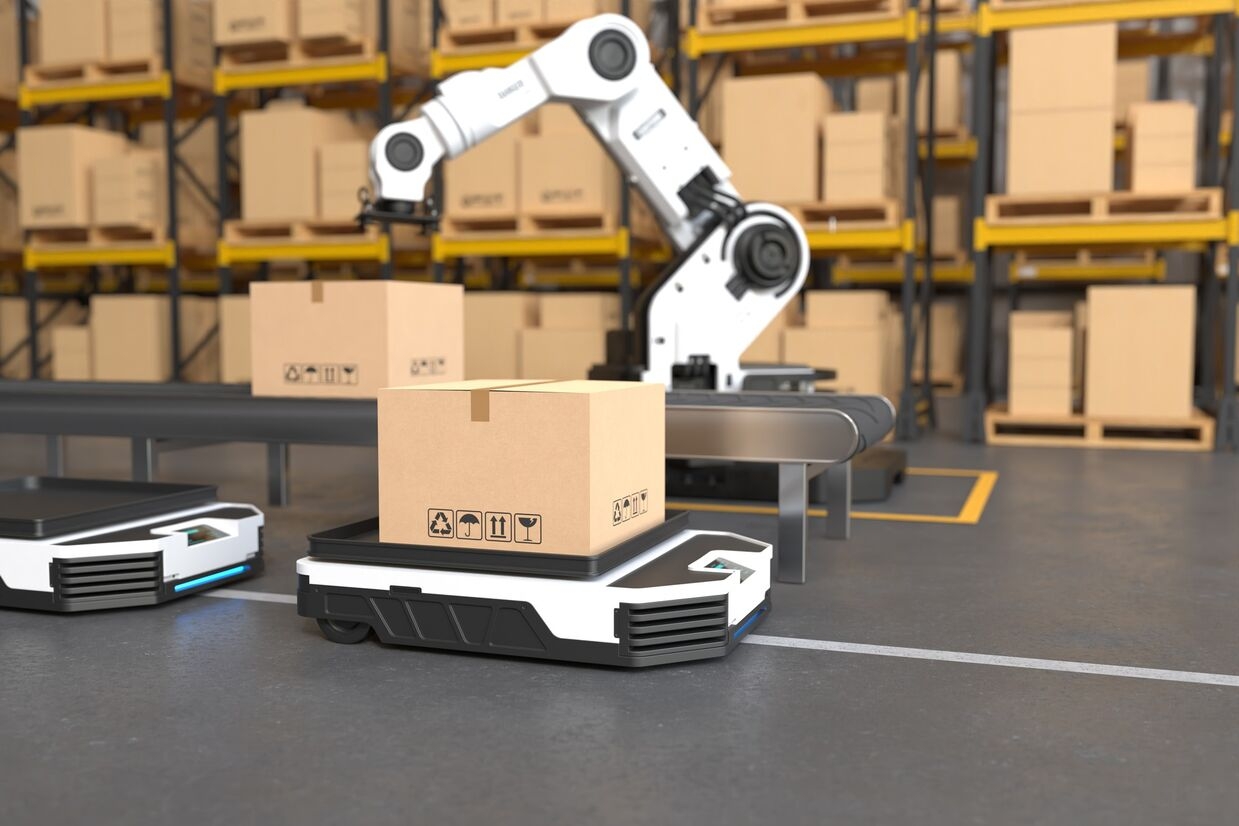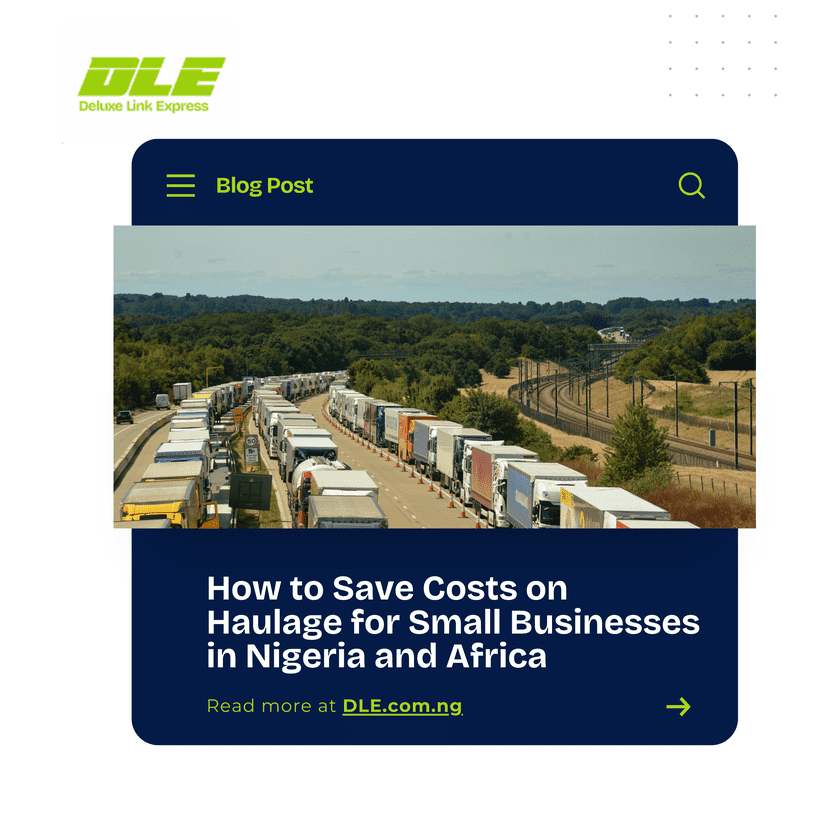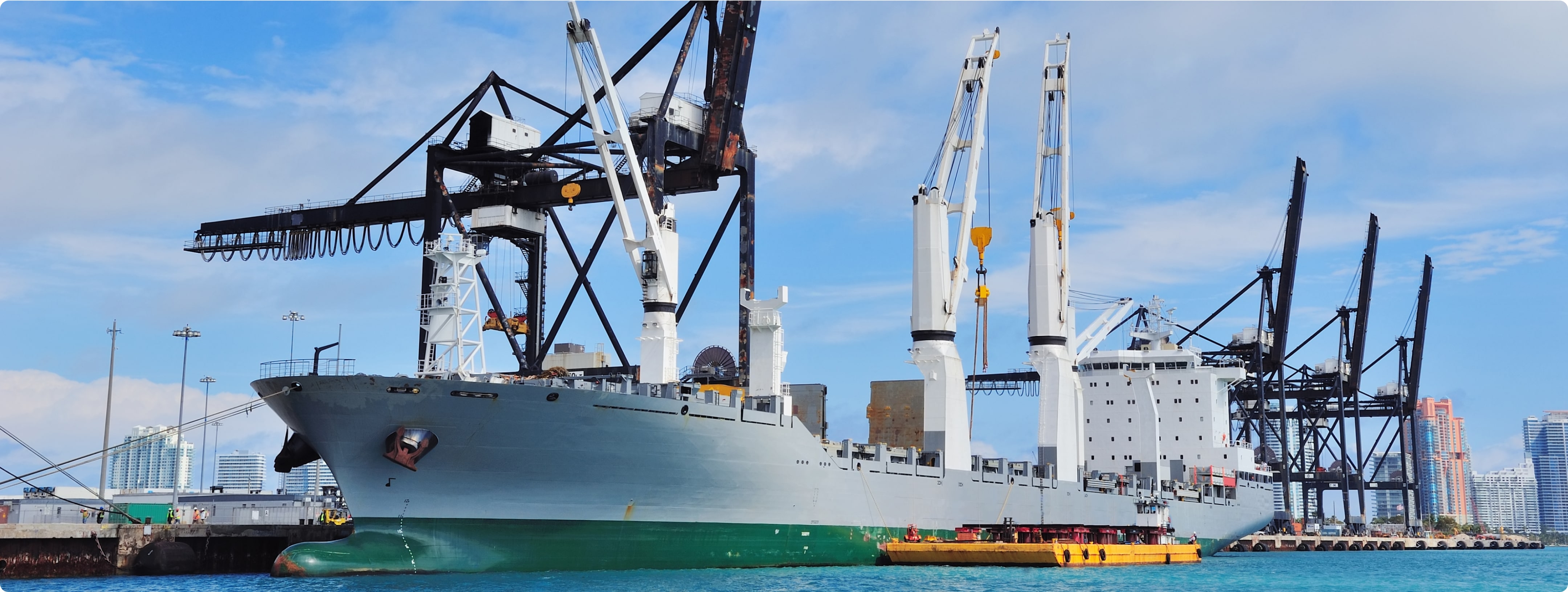
Our Blog
 Olivia
Rhye •
20 Jan 2024
Olivia
Rhye •
20 Jan 2024
How do you create compelling presentations that wow your colleagues and impress your managers?
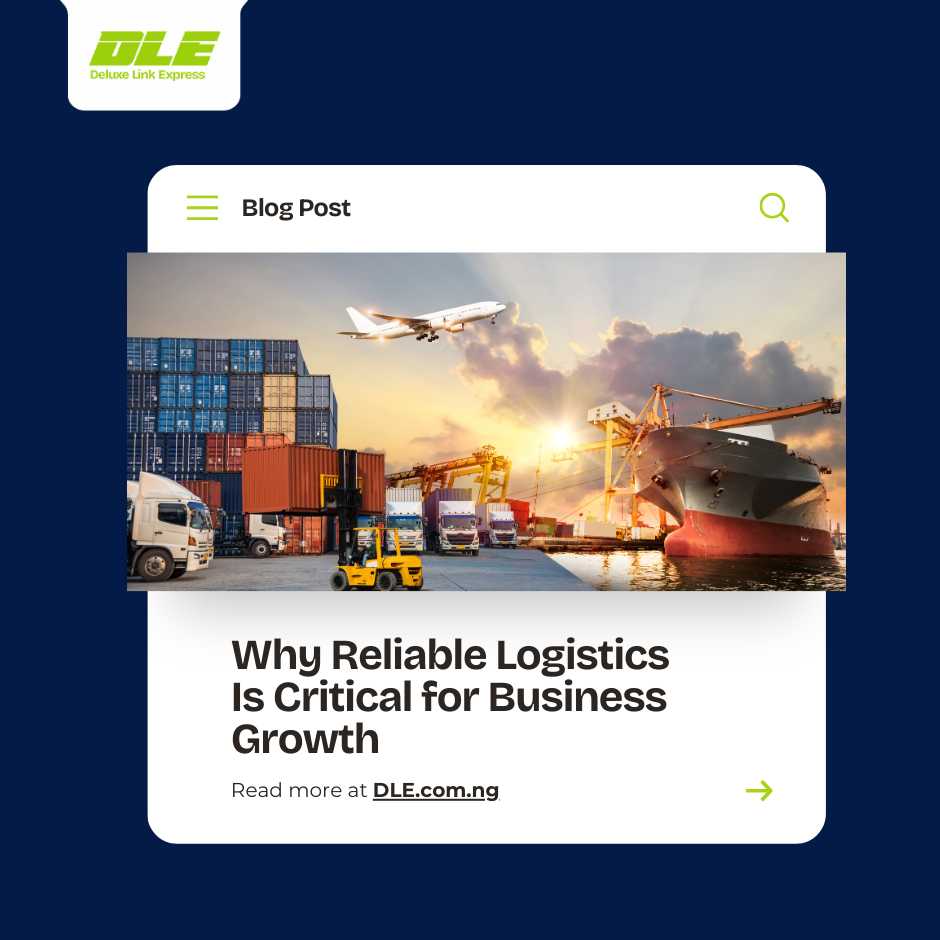
<p style="text-align: justify;">For many businesses, growth doesn’t stall because of poor products or lack of demand<span lang="EN-US" style="mso-ansi-language: EN-US;">, </span>it stalls because goods do<span lang="EN-US" style="mso-ansi-language: EN-US;">esn’t </span><span style="mso-spacerun: yes;"> </span>move efficiently. Orders increase<span lang="EN-US" style="mso-ansi-language: EN-US;">s</span>, customers place repeat requests, but without dependable logistics, businesses struggle to deliver consistently, expand into new markets, or meet rising expectations.</p> <p style="text-align: justify;">From local deliveries within Lagos and Abuja to international shipping routes connecting Nigeria to overseas markets like the UK, USA, and Canada, logistics plays a direct role in how far and how fast<span style="mso-spacerun: yes;"> </span>a business can grow.</p> <p> </p> <h2><strong>1. Delivery Reliability Directly Influences Buying Decisions</strong></h2> <p style="text-align: justify;">Customers don’t just compare prices anymore. They compare experiences and delivery is a major part of that experience.</p> <p style="text-align: justify;">Businesses that consistently deliver on time are more likely to win trust and retain customers. Reliable logistics helps businesses:</p> <ul style="margin-top: 0in;" type="disc"> <li style="mso-list: l6 level1 lfo1; tab-stops: list .5in;">Fulfill orders as promised</li> <li style="mso-list: l6 level1 lfo1; tab-stops: list .5in;">Reduce delivery delays and failed drop-offs</li> <li style="mso-list: l6 level1 lfo1; tab-stops: list .5in;">Offer clear shipment tracking</li> <li style="mso-list: l6 level1 lfo1; tab-stops: list .5in;">Build credibility with customers</li> </ul> <p style="text-align: justify;">In busy commercial hubs like Lagos and Abuja, timely delivery is often the difference between closing a sale and losing a customer to a competitor.</p> <p> </p> <h2><strong>2. Strong Local Logistics Improves Daily Operations</strong></h2> <p>Efficient local delivery systems allow businesses to serve customers faster and operate more smoothly. Whether it’s same-day delivery within Lagos or scheduled dispatches across Abuja, having a trusted courier partner removes friction from daily operations.</p> <p>Effective local logistics supports:</p> <ul style="margin-top: 0in;" type="disc"> <li style="mso-list: l0 level1 lfo2; tab-stops: list .5in;">Faster order fulfillment</li> <li style="mso-list: l0 level1 lfo2; tab-stops: list .5in;">Reduced transportation delays</li> <li style="mso-list: l0 level1 lfo2; tab-stops: list .5in;">Better coordination with customers</li> <li style="mso-list: l0 level1 lfo2; tab-stops: list .5in;">More consistent service delivery</li> </ul> <p>For retailers, e-commerce brands, manufacturers, and corporate organizations, this level of efficiency isn’t optional it’s essential.</p> <p> </p> <h2><strong>3. International Shipping Creates New Revenue Opportunities</strong></h2> <p>Expanding beyond local markets requires more than ambition. Businesses shipping goods from Nigeria to international destinations must navigate customs processes, documentation, transit timelines, and secure handling.</p> <p>Dependable international logistics services allow businesses to:</p> <ul style="margin-top: 0in;" type="disc"> <li style="mso-list: l1 level1 lfo3; tab-stops: list .5in;">Serve overseas customers with confidence</li> <li style="mso-list: l1 level1 lfo3; tab-stops: list .5in;">Fulfill export orders efficiently</li> <li style="mso-list: l1 level1 lfo3; tab-stops: list .5in;">Protect goods throughout transit</li> <li style="mso-list: l1 level1 lfo3; tab-stops: list .5in;">Compete effectively in global markets</li> </ul> <p>Without <a href="https://www.dle.com.ng/article/how-to-choose-a-reliable-logistics-company-in-lagos-2026-buyer-s-guide-for-businesses-individuals">a reliable logistics partner</a>, cross-border shipping quickly becomes expensive, slow, and unpredictable limiting growth instead of enabling it.</p> <p> </p> <h2><strong>4. Efficient Logistics Protects Profit Margins</strong></h2> <p>Unreliable logistics often creates hidden costs that add up over time, including:</p> <ul style="margin-top: 0in;" type="disc"> <li style="mso-list: l2 level1 lfo4; tab-stops: list .5in;">Product damage or losses</li> <li style="mso-list: l2 level1 lfo4; tab-stops: list .5in;">Repeat delivery attempts</li> <li style="mso-list: l2 level1 lfo4; tab-stops: list .5in;">Refunds and customer complaints</li> <li style="mso-list: l2 level1 lfo4; tab-stops: list .5in;">Operational delays</li> </ul> <p>Professional logistics providers reduce these risks by optimizing delivery routes, improving handling processes, and maintaining accountability at every stage of movement. Over time, this efficiency translates directly into healthier profit margins.</p> <p> </p> <h2><strong>5. Scalable Logistics Supports Sustainable Expansion</strong></h2> <p>As businesses grow, logistics demands increase. Higher order volumes, wider delivery coverage, and tighter timelines require systems that can scale without sacrificing service quality.</p> <p>Scalable logistics solutions help businesses:</p> <ul style="margin-top: 0in;" type="disc"> <li style="mso-list: l5 level1 lfo5; tab-stops: list .5in;">Manage growing shipment volumes</li> <li style="mso-list: l5 level1 lfo5; tab-stops: list .5in;">Expand delivery routes across cities and countries</li> <li style="mso-list: l5 level1 lfo5; tab-stops: list .5in;">Maintain reliability during peak periods</li> <li style="mso-list: l5 level1 lfo5; tab-stops: list .5in;">Support long-term growth strategies</li> </ul> <p>From intra-city deliveries to international freight, logistics scalability determines how smoothly a business can expand.</p> <h2> </h2> <h2><strong>6. The Right Logistics Partner Reduces Operational Stress</strong></h2> <p>Handling logistics internally can quickly become time-consuming and costly. Partnering with a reliable logistics company allows businesses to focus on what they do best<span lang="EN-US" style="mso-ansi-language: EN-US;">, </span>sales, customer service, and strategic growth.</p> <p>A dependable logistics partner provides:</p> <ul style="margin-top: 0in;" type="disc"> <li style="mso-list: l4 level1 lfo6; tab-stops: list .5in;">Professional courier services</li> <li style="mso-list: l4 level1 lfo6; tab-stops: list .5in;">Secure transportation of goods</li> <li style="mso-list: l4 level1 lfo6; tab-stops: list .5in;">Domestic and international shipping options</li> <li style="mso-list: l4 level1 lfo6; tab-stops: list .5in;">Real-time tracking and delivery accountability</li> </ul> <p><a href="https://www.dle.com.ng/">Deluxe Link Express</a> works with businesses operating across Lagos and Abuja, as well as those shipping from Nigeria to international markets, offering tailored logistics solutions that support both daily operations and long-term expansion.</p> <p> </p> <h2><strong>7. Consistent Delivery Builds Long-Term Trust</strong></h2> <p>Consistency is what turns first-time buyers into loyal customers. When deliveries are predictable and reliable, businesses earn trust<span style="mso-spacerun: yes;"> </span>and trust drives repeat business, referrals, and sustained growth.</p> <p>Reliable logistics helps businesses build:</p> <ul style="margin-top: 0in;" type="disc"> <li style="mso-list: l3 level1 lfo7; tab-stops: list .5in;">Stronger customer relationships</li> <li style="mso-list: l3 level1 lfo7; tab-stops: list .5in;">A positive brand reputation</li> <li style="mso-list: l3 level1 lfo7; tab-stops: list .5in;">Higher customer retention</li> <li style="mso-list: l3 level1 lfo7; tab-stops: list .5in;">Long-term market confidence</li> </ul> <p> </p> <h2><strong>Final Thoughts</strong></h2> <p>Reliable logistics isn’t just a backend operation<span lang="EN-US" style="mso-ansi-language: EN-US;">, </span>it’s a growth engine. Businesses that invest in dependable courier and logistics services are better positioned to compete locally, expand internationally, and scale without disruption.</p> <p>Whether you<span lang="EN-US" style="mso-ansi-language: EN-US;"> a</span>re delivering within Lagos, across Abuja, or shipping from Nigeria to global destinations, <a href="https://www.dle.com.ng/article/how-to-choose-a-reliable-logistics-company-in-lagos-2026-buyer-s-guide-for-businesses-individuals">choosing the right logistics partner</a> can determine how successfully your business grows over time.</p> <p>If your business is looking to improve delivery reliability, streamline operations, or expand into new markets, working with an <a href="https://www.dle.com.ng/">experienced logistics provider</a> can make all the difference.</p> <p> </p>

Helen Adesewa
02 Feb 2026
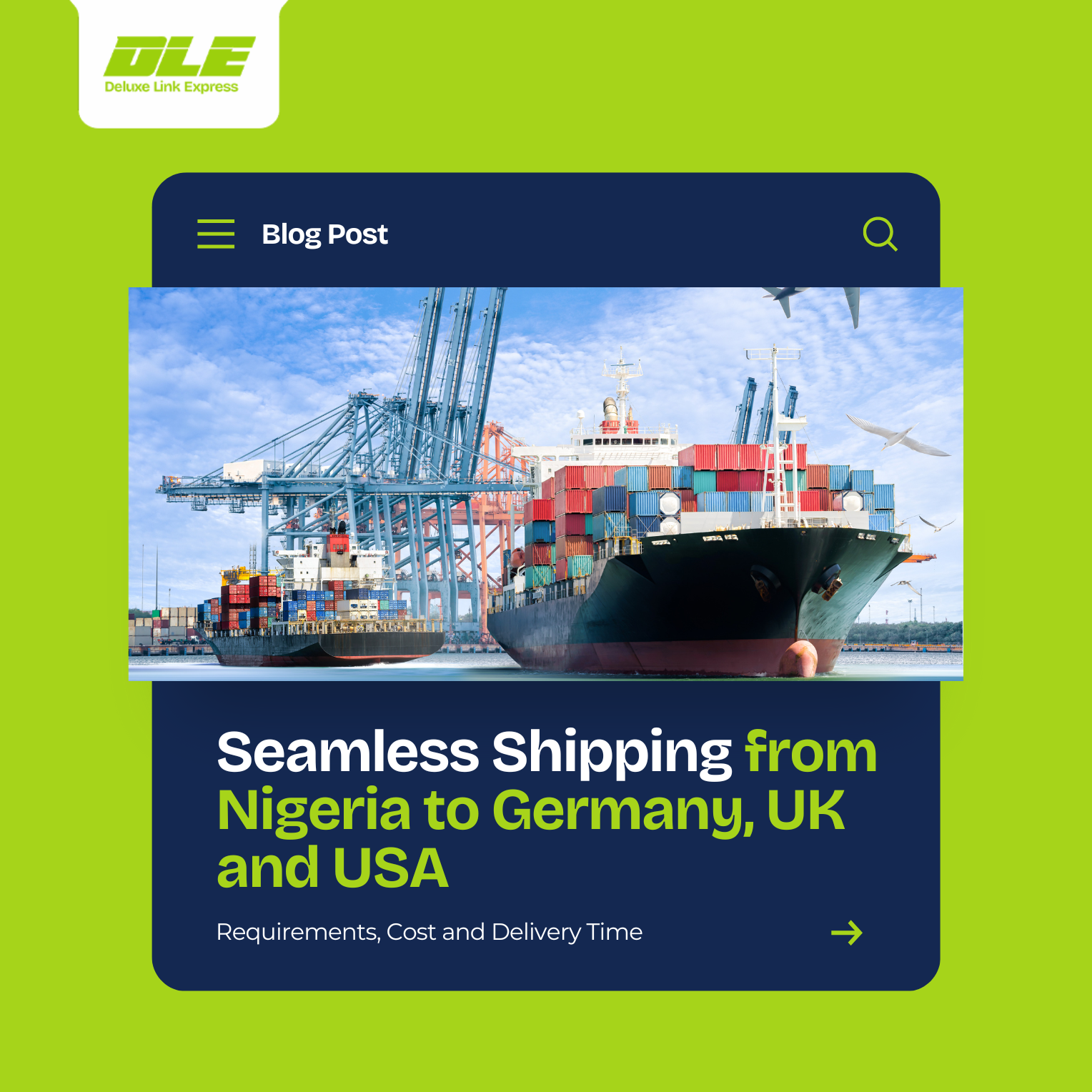
<p align=\"center\"> </p> <p><span lang=\"EN-US\">As international trade continues to expand, reliable and efficient shipping from Nigeria to Germany, the UK, and the United States has never been more essential. Whether you’re an e-commerce seller, small business owner, or individual sending gifts or personal items abroad understanding the requirements, cost factors, and delivery timelines is key to a smooth shipping experience.</span></p> <p><span lang=\"EN-US\">At <a href=\"https://www.dle.com.ng/\">Deluxe Link Express</a><em> </em>we specialize in international export services from Nigeria, offering flexible solutions that deliver reliability, transparency, and peace of mind.</span></p> <h2><strong><span lang=\"EN-US\">Why Choose Our International Shipping Services</span></strong></h2> <p><span lang=\"EN-US\">Shipping internationally can be confusing from tariffs and customs documentation to variable delivery times. That’s why our team handles everything from <a href=\"https://www.dle.com.ng/article/last-mile-delivery-services-in-nigeria-how-dle-handle-door-to-door-delivery\">door-to-door pickup</a>, real-time tracking updates, to expert customs clearance support for shipments from Nigeria to Germany, UK, and USA.</span></p> <p><span lang=\"EN-US\">We help businesses and individual ship:</span></p> <ul type=\"disc\"> <li><span lang=\"EN-US\">Parcels and packages</span></li> <li><span lang=\"EN-US\">Business goods </span><span lang=\"EN-US\">and commercial inventory</span></li> <li><span lang=\"EN-US\">E-commerce product</span></li> <li><span lang=\"EN-US\">Personal items and gifts</span></li> <li><span lang=\"EN-US\">Documents and </span><span lang=\"EN-US\">non-hazardous items</span></li> </ul> <p><span lang=\"EN-US\">With personalized support and competitive rates, you get reliable delivery without the guesswork.</span></p> <p><span lang=\"EN-US\"> </span></p> <h2><strong><span lang=\"EN-US\"><span> </span>Required Documents for International Shipping</span></strong></h2> <p><span lang=\"EN-US\">To avoid delays and customs holds, make sure you have the right documentation and the following export requirements:</span></p> <p><strong><span lang=\"EN-US\"><span> </span>Required Documents</span></strong></p> <p><span lang=\"EN-US\">Before your shipment leaves Nigeria, the following are typically needed:</span></p> <ul type=\"disc\"> <li><span lang=\"EN-US\">Airway Bill / Waybill</span></li> <li><span lang=\"EN-US\">Packing List & Commercial Invoice</span></li> <li><span lang=\"EN-US\">Sender and Recipient Details (Names, Addresses, Phone Numbers)</span></li> <li><span lang=\"EN-US\">Customs Declaration & HS Codes</span></li> <li><span lang=\"EN-US\">Export Licenses (if applicable)</span></li> </ul> <p><span lang=\"EN-US\">These documents help your shipment clear customs smoothly both in Nigeria and at the destination. Missing paperwork can lead to delays and extra fees. </span></p> <p><span lang=\"EN-US\">At Deluxe Link Express, our team reviews your shipment before dispatch to ensure it complies with destination country regulations, helping you avoid unnecessary delays or seizures.</span></p> <p><span lang=\"EN-US\"> </span></p> <h2><strong><span lang=\"EN-US\">Shipping Costs: Nigeria to UK, USA & Germany</span></strong></h2> <p><span lang=\"EN-US\">Shipping costs depend on several factors:</span></p> <ul type=\"disc\"> <li><span lang=\"EN-US\">Weight and dimensions of the package</span></li> <li><span lang=\"EN-US\">Destination country</span></li> <li><span lang=\"EN-US\">Shipping method (express or standard)</span></li> <li><span lang=\"EN-US\">Nature of the goods</span></li> </ul> <blockquote><strong><span lang=\"EN-US\">Estimated Shipping Cost Range</span></strong></blockquote> <p><span lang=\"EN-US\">While prices vary, here’s a general guide to look out for:</span></p> <ul type=\"disc\"> <li><strong><span lang=\"EN-US\">Shipping from Nigeria to UK</span></strong><span lang=\"EN-US\">: Competitive per‑kg rates with bulk discounts</span></li> <li><strong><span lang=\"EN-US\">Shipping from Nigeria to USA</span></strong><span lang=\"EN-US\">: Flexible pricing for individuals and businesses</span></li> <li><strong><span lang=\"EN-US\">Shipping from Nigeria to Germany</span></strong><span lang=\"EN-US\">: Cost‑effective options for personal and commercial cargo</span></li> </ul> <p><span lang=\"EN-US\">Unlike many logistic providers, <a href=\"https://www.dle.com.ng/\">Deluxe Link Express</a> offers transparent pricing no hidden fees, no surprise charges after drop‑off.</span></p> <p><span lang=\"EN-US\">For accurate quotes, we recommend requesting a free shipping estimate tailored to your package.</span><strong><span lang=\"EN-US\"> </span></strong></p> <blockquote><strong><span lang=\"EN-US\"><span> </span>Customs Processing Time</span></strong></blockquote> <p><span lang=\"EN-US\">Even with fast shipping, customs clearance in destination countries can add extra time. Germany and UK customs may require extra inspections and paperwork checks plan for 3–7 working days.</span></p> <p><span lang=\"EN-US\"> </span><strong><span lang=\"EN-US\">Hidden Fees & How We Prevent Them</span></strong></p> <p><span lang=\"EN-US\">When shipping internationally, it’s common to encounter:</span></p> <ul type=\"disc\"> <li><span lang=\"EN-US\">Customs duties and taxes</span></li> <li><span lang=\"EN-US\">Brokerage fees</span></li> <li><span lang=\"EN-US\">Handling charges</span></li> <li><span lang=\"EN-US\">Fuel surcharges</span></li> </ul> <p><span lang=\"EN-US\">We provide transparent quotes, with no hidden fees to help you. This reduces costly surprises and ensures your shipment arrives smoothly.</span></p> <blockquote><span lang=\"EN-US\"> </span><strong><span lang=\"EN-US\">Tips for Affordable & Reliable Shipping</span></strong></blockquote> <p><span lang=\"EN-US\">Strategy to use for your international shipping:</span></p> <p><span lang=\"EN-US\">Book early to avoid peak season surcharges<br>Choose the right service (express vs economy) based on urgency<br>Use professional packing to minimize damages</span></p> <blockquote><strong><span lang=\"EN-US\">Why Our Clients Trust Us</span></strong></blockquote> <p><span lang=\"EN-US\">At Deluxe Link Express we combine:</span></p> <ul type=\"disc\"> <li><span lang=\"EN-US\">Competitive shipping rates</span></li> <li><span lang=\"EN-US\">Door-to-door pickup and delivery</span></li> <li><span lang=\"EN-US\">Real-time tracking</span></li> <li><span lang=\"EN-US\">Customs compliance support</span></li> <li><span lang=\"EN-US\">Dedicated customer care</span></li> </ul> <p><span lang=\"EN-US\">We ensure your shipment from Nigeria to Germany, the UK, and the USA arrives on time and intact.</span></p> <p><strong><span lang=\"EN-US\">Get a free shipping quote today!</span></strong><span lang=\"EN-US\"><br><a href=\"https://www.dle.com.ng/\">Visit our website</a> today and let our logistics experts help you plan your next international shipment.</span></p> <p><span lang=\"EN-US\"> </span></p>

Helen Adesewa
29 Jan 2026
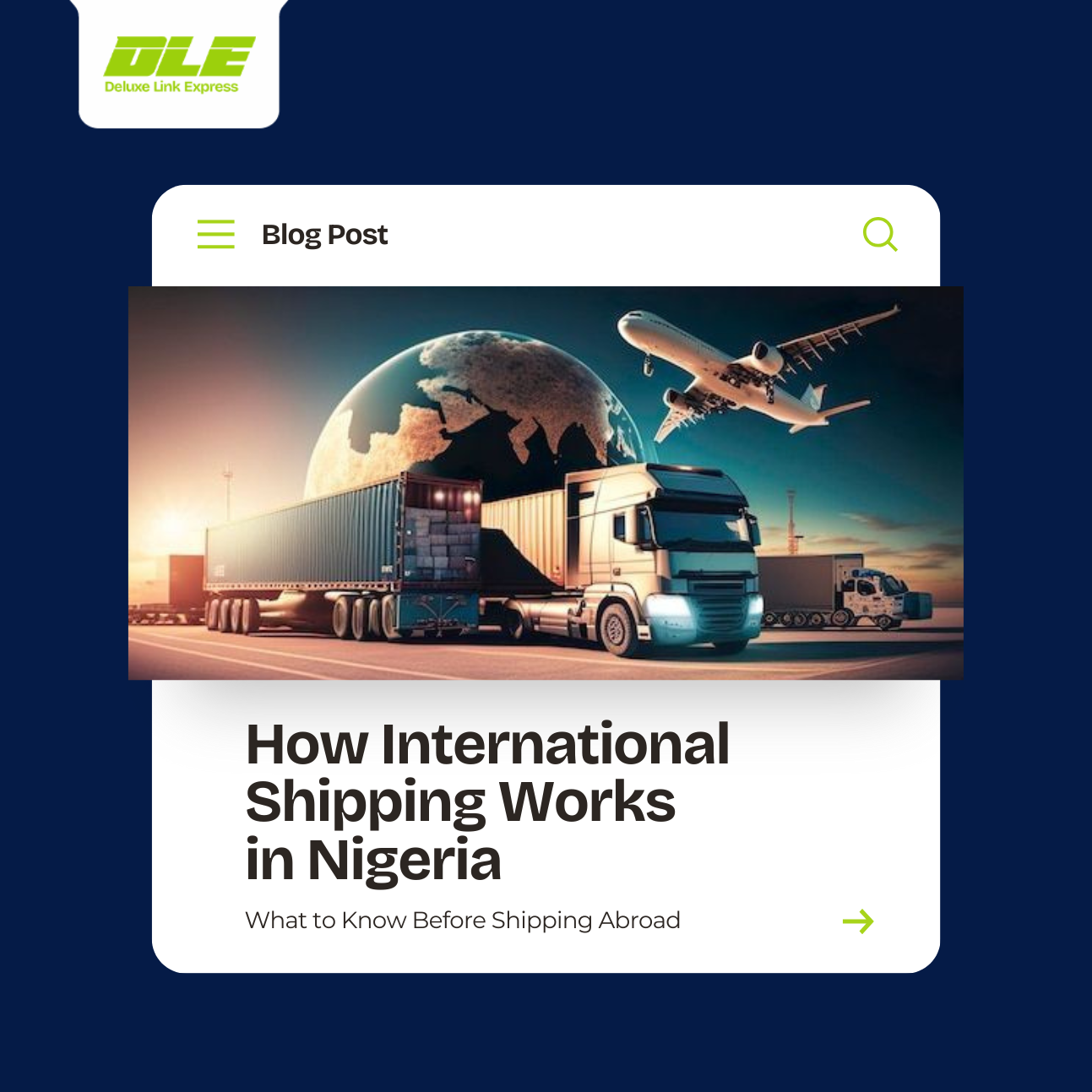
<p>International shipping plays a major role in today’s Nigerian economy<span lang=\"EN-US\">,</span> supporting businesses that sell globally and individuals sending parcels to friends, family, or customers abroad. Whether you’re exporting products or sending a one‑off package, understanding how overseas shipping works from Nigeria can save you time, money, and stress.</p> <p>This guide explains the international shipping process in Nigeria, what to expect at each stage, and how to choose a reliable courier for smooth worldwide delivery.</p> <p><span> </span></p> <h2><strong><span>Understanding International Shipping in Nigeria</span></strong></h2> <p>International shipping simply means moving goods from Nigeria to another country using air, sea, or land freight. In practice, air freight is the most common option in Nigeria, especially for parcels that require speed, tracking, and doorstep delivery.</p> <p>Major logistics hubs like Lagos and Abuja handle most outbound international shipments due to their access to international airports, customs offices, and courier networks.</p> <p> </p> <h2><strong><span>The International Shipping Process in Nigeria (Step‑by‑Step)</span></strong></h2> <blockquote><strong>1. Package Preparation</strong></blockquote> <p>Before sending goods abroad, items must be securely packaged and clearly labeled. Packaging standards depend on the type of item and the destination country, so professional guidance helps prevent damage or rejection during transit.</p> <blockquote><strong>2. Documentation & Customs Clearance</strong></blockquote> <p>Accurate paperwork is essential when shipping goods internationally from Nigeria. Common documents include:</p> <ul type=\"disc\"> <li>Commercial invoice</li> <li>Packing list</li> <li>Export permits (for restricted or regulated items)</li> </ul> <p>Customs clearance is often the most sensitive stage. Experienced courier companies <span lang=\"EN-US\">like <a href=\"https://www.dle.com.ng/\">DLE</a> </span>typically manage this process to reduce delays and ensure compliance with Nigerian export regulations.</p> <blockquote><strong>3. Carrier Selection</strong></blockquote> <p>Choosing a reputable international courier makes a big difference. A trusted provider helps you select the best shipping method based on urgency, destination, and budget<span> </span>while also offering shipment visibility and customer support.</p> <blockquote><strong>4. Transportation & Tracking</strong></blockquote> <p>Once customs clearance is completed, your parcel is transported to the destination country. Most global courier services provide real‑time tracking, allowing senders to monitor progress from dispatch to delivery.</p> <blockquote><strong>5. Final Delivery</strong></blockquote> <p>After clearing customs in the destination country, the package is delivered directly to the recipient’s address whether it’s heading to North America, Europe, or elsewhere.</p> <h2> </h2> <h2><strong>Common International Shipping Routes from Nigeria</strong></h2> <p>Nigerians frequently send parcels to major global markets, including:</p> <ul type=\"disc\"> <li>Nigeria to the United States</li> <li>Nigeria to the United Kingdom</li> <li>Nigeria to Canada</li> <li>European and Asian destinations</li> <li>Worldwide shipping for businesses serving international customers</li> </ul> <p>Inbound shipping such as receiving goods into Nigeria from the USA or UK<span> </span>is also increasingly popular, particularly for e‑commerce and personal purchases.</p> <p> </p> <h2><strong>Shipping from Lagos and Abuja</strong></h2> <p>Most international courier services operate from Nigeria’s major cities:</p> <ul type=\"disc\"> <li><strong>Lagos</strong> remains the primary shipping hub due to its advanced logistics infrastructure and international airport access.</li> <li><strong>Abuja</strong> offers fast and convenient air freight options, especially for customers in Northern Nigeria.</li> </ul> <p>Using a courier with strong operations in either city often results in faster processing and smoother export handling.</p> <blockquote></blockquote> <blockquote><strong>Why Choosing the Right Courier Matters</strong></blockquote> <p>Your shipping experience depends largely on the courier you select. A dependable international delivery company typically offers:</p> <ul type=\"disc\"> <li>Reliable pickup and doorstep delivery</li> <li>Competitive and transparent pricing</li> <li>Strong customs knowledge</li> <li>Secure handling of parcels</li> <li>Consistent delivery timelines</li> </ul> <p>Working with a professional courier helps minimize delays, avoid documentation errors, and gives peace of mind throughout the shipping journey.</p> <p> </p> <p><strong>Making International Shipping from Nigeria Simple</strong></p> <p>Whether you’re a business owner expanding into global markets or an individual sending a parcel overseas, international shipping doesn’t have to be complicated. With the right logistics partner, the process becomes clear, efficient, and stress‑free.</p> <p>At <a href=\"https://www.dle.com.ng/\"><strong>Deluxe Link Express</strong></a>, we manage the entire shipping process from pickup and documentation to customs clearance and final delivery<span lang=\"EN-US\">, we</span> help customers ship <span lang=\"EN-US\">seamlessly</span> to the USA, UK, Canada, and beyond.</p> <p> </p> <p><strong>Ready to Ship Internationally?</strong></p> <p>Choose a <a href=\"https://www.dle.com.ng/\">trusted international courier in Nigeria</a> and enjoy fast, secure, and reliable worldwide delivery with doorstep service. When you work with professionals, sending parcels abroad becomes less about paperwork and more about peace of mind.</p> <p> </p>

Helen Adesewa
29 Jan 2026
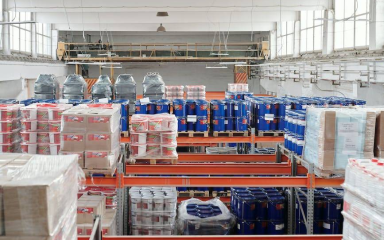
<p style="text-align: justify;">International shipping plays a major role in today’s Nigerian economy<span lang="EN-US" style="mso-ansi-language: EN-US;">,</span> supporting businesses that sell globally and individuals sending parcels to friends, family, or customers abroad. Whether you’re exporting products or sending a one‑off package, understanding how overseas shipping works from Nigeria can save you time, money, and stress.</p> <p style="text-align: justify;">This guide explains the international shipping process in Nigeria, what to expect at each stage, and how to choose a reliable courier for smooth worldwide delivery.</p> <p style="text-align: justify;"><span style="font-size: 14.0pt; line-height: 115%;"> </span></p> <h2><strong><span style="font-size: 14.0pt; line-height: 115%;">Understanding International Shipping in Nigeria</span></strong></h2> <p style="text-align: justify;">International shipping simply means moving goods from Nigeria to another country using air, sea, or land freight. In practice, air freight is the most common option in Nigeria, especially for parcels that require speed, tracking, and doorstep delivery.</p> <p style="text-align: justify;">Major logistics hubs like Lagos and Abuja handle most outbound international shipments due to their access to international airports, customs offices, and courier networks.</p> <p> </p> <h2><strong><span style="font-size: 14.0pt; line-height: 115%;">The International Shipping Process in Nigeria (Step‑by‑Step)</span></strong></h2> <blockquote><strong>1. Package Preparation</strong></blockquote> <p style="text-align: justify;">Before sending goods abroad, items must be securely packaged and clearly labeled. Packaging standards depend on the type of item and the destination country, so professional guidance helps prevent damage or rejection during transit.</p> <blockquote><strong>2. Documentation & Customs Clearance</strong></blockquote> <p style="text-align: justify;">Accurate paperwork is essential when shipping goods internationally from Nigeria. Common documents include:</p> <ul style="margin-top: 0in; text-align: justify;" type="disc"> <li style="mso-list: l2 level1 lfo1; tab-stops: list .5in;">Commercial invoice</li> <li style="mso-list: l2 level1 lfo1; tab-stops: list .5in;">Packing list</li> <li style="mso-list: l2 level1 lfo1; tab-stops: list .5in;">Export permits (for restricted or regulated items)</li> </ul> <p style="text-align: justify;">Customs clearance is often the most sensitive stage. Experienced courier companies <span lang="EN-US" style="mso-ansi-language: EN-US;">like <a href="https://www.dle.com.ng/">DLE</a> </span>typically manage this process to reduce delays and ensure compliance with Nigerian export regulations.</p> <blockquote><strong>3. Carrier Selection</strong></blockquote> <p style="text-align: justify;">Choosing a reputable international courier makes a big difference. A trusted provider helps you select the best shipping method based on urgency, destination, and budget<span style="mso-spacerun: yes;"> </span>while also offering shipment visibility and customer support.</p> <blockquote><strong>4. Transportation & Tracking</strong></blockquote> <p style="text-align: justify;">Once customs clearance is completed, your parcel is transported to the destination country. Most global courier services provide real‑time tracking, allowing senders to monitor progress from dispatch to delivery.</p> <blockquote><strong>5. Final Delivery</strong></blockquote> <p style="text-align: justify;">After clearing customs in the destination country, the package is delivered directly to the recipient’s address whether it’s heading to North America, Europe, or elsewhere.</p> <h2> </h2> <h2><strong>Common International Shipping Routes from Nigeria</strong></h2> <p>Nigerians frequently send parcels to major global markets, including:</p> <ul style="margin-top: 0in;" type="disc"> <li style="mso-list: l0 level1 lfo2; tab-stops: list .5in;">Nigeria to the United States</li> <li style="mso-list: l0 level1 lfo2; tab-stops: list .5in;">Nigeria to the United Kingdom</li> <li style="mso-list: l0 level1 lfo2; tab-stops: list .5in;">Nigeria to Canada</li> <li style="mso-list: l0 level1 lfo2; tab-stops: list .5in;">European and Asian destinations</li> <li style="mso-list: l0 level1 lfo2; tab-stops: list .5in;">Worldwide shipping for businesses serving international customers</li> </ul> <p style="text-align: justify;">Inbound shipping such as receiving goods into Nigeria from the USA or UK<span style="mso-spacerun: yes;"> </span>is also increasingly popular, particularly for e‑commerce and personal purchases.</p> <p> </p> <h2><strong>Shipping from Lagos and Abuja</strong></h2> <p>Most international courier services operate from Nigeria’s major cities:</p> <ul style="margin-top: 0in;" type="disc"> <li style="mso-list: l3 level1 lfo3; tab-stops: list .5in;"><strong>Lagos</strong> remains the primary shipping hub due to its advanced logistics infrastructure and international airport access.</li> <li style="mso-list: l3 level1 lfo3; tab-stops: list .5in;"><strong>Abuja</strong> offers fast and convenient air freight options, especially for customers in Northern Nigeria.</li> </ul> <p>Using a courier with strong operations in either city often results in faster processing and smoother export handling.</p> <blockquote></blockquote> <blockquote><strong>Why Choosing the Right Courier Matters</strong></blockquote> <p>Your shipping experience depends largely on the courier you select. A dependable international delivery company typically offers:</p> <ul style="margin-top: 0in;" type="disc"> <li style="mso-list: l1 level1 lfo4; tab-stops: list .5in;">Reliable pickup and doorstep delivery</li> <li style="mso-list: l1 level1 lfo4; tab-stops: list .5in;">Competitive and transparent pricing</li> <li style="mso-list: l1 level1 lfo4; tab-stops: list .5in;">Strong customs knowledge</li> <li style="mso-list: l1 level1 lfo4; tab-stops: list .5in;">Secure handling of parcels</li> <li style="mso-list: l1 level1 lfo4; tab-stops: list .5in;">Consistent delivery timelines</li> </ul> <p style="text-align: justify;">Working with a professional courier helps minimize delays, avoid documentation errors, and gives peace of mind throughout the shipping journey.</p> <p> </p> <p><strong>Making International Shipping from Nigeria Simple</strong></p> <p style="text-align: justify;">Whether you’re a business owner expanding into global markets or an individual sending a parcel overseas, international shipping doesn’t have to be complicated. With the right logistics partner, the process becomes clear, efficient, and stress‑free.</p> <p style="text-align: justify;">At <a href="https://www.dle.com.ng/"><strong>Deluxe Link Express</strong></a>, we manage the entire shipping process from pickup and documentation to customs clearance and final delivery<span lang="EN-US" style="mso-ansi-language: EN-US;">, we</span> help customers ship <span lang="EN-US" style="mso-ansi-language: EN-US;">seamlessly</span> to the USA, UK, Canada, and beyond.</p> <p> </p> <p><strong>Ready to Ship Internationally?</strong></p> <p style="text-align: justify;">Choose a <a href="https://www.dle.com.ng/">trusted international courier in Nigeria</a> and enjoy fast, secure, and reliable worldwide delivery with doorstep service. When you work with professionals, sending parcels abroad becomes less about paperwork and more about peace of mind.</p> <p> </p>

Helen Adesewa
29 Jan 2026
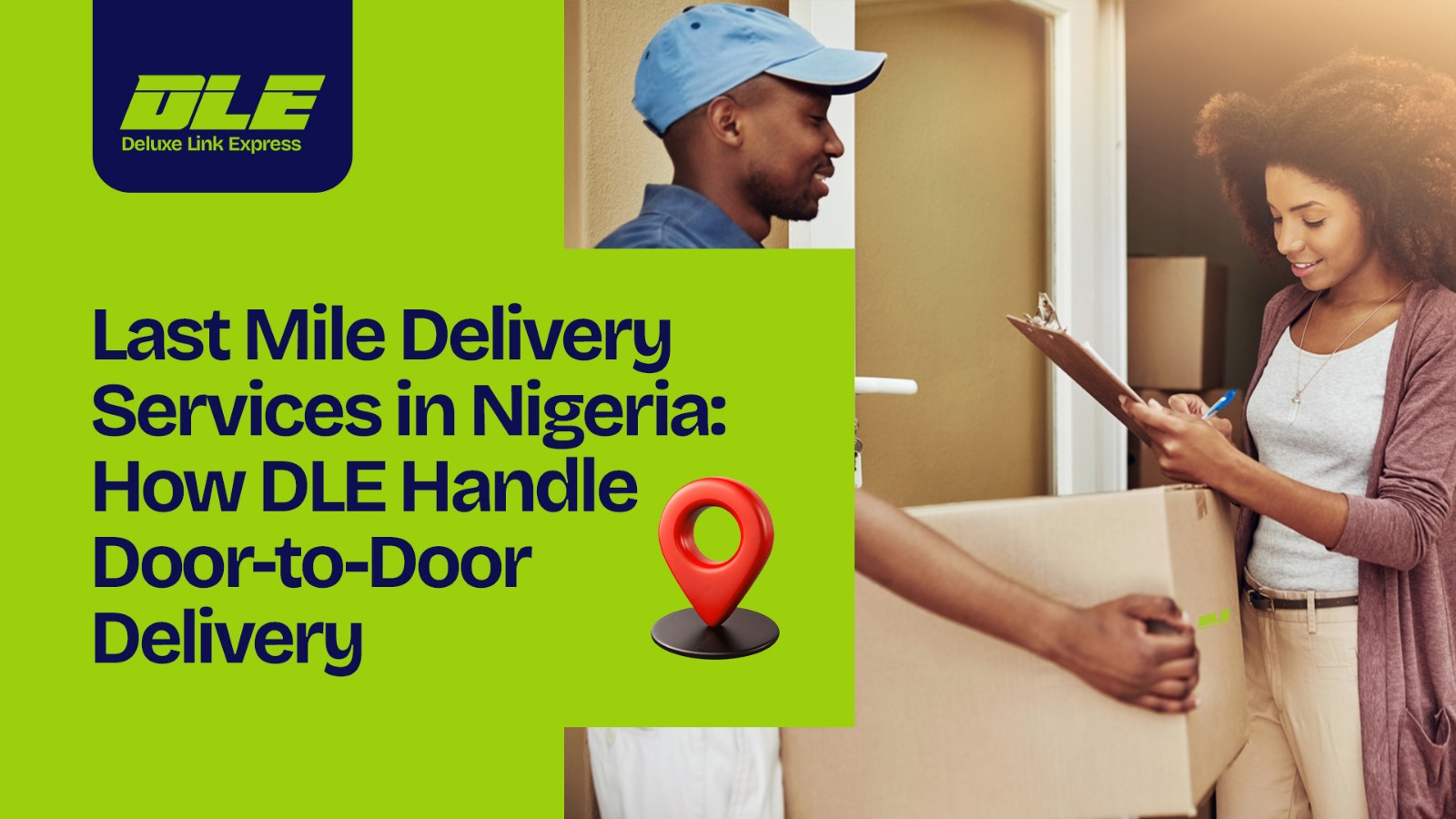
<p>In today’s fast-paced world, convenience and reliability are everything when it comes to shipping goods. Whether you’re sending parcels from the USA to Nigeria, Europe to Lagos, or within Nigeria itself, last mile delivery is the critical final step that ensures your items reach their destination safely and on time. This is where <a href="https://www.dle.com.ng/">Deluxe Link Express </a>(DLE) shines as a trusted provider of door-to-door delivery services.</p> <h1><strong><span style="font-size: 14.0pt; line-height: 115%;">What Is Last Mile Delivery?</span></strong></h1> <p>Last mile delivery refers to the final stage of the shipping process<span lang="EN-US" style="mso-ansi-language: EN-US;">, </span>the movement of goods from a transportation hub to the recipient’s doorstep. While it may sound simple, this stage is often the most complex and costly part of logistics. Challenges like traffic congestion, unpredictable addresses, and local delivery restrictions can affect timely delivery.</p> <p>This is why choosing <a href="https://www.dle.com.ng/">the right last mile delivery service</a> is essential, especially in Nigeria, where diverse locations and road conditions require a courier company with local expertise.</p> <h2><strong><span style="font-size: 14.0pt; line-height: 115%;">How DLE Handles Door-to-Door Delivery</span></strong></h2> <p>At Deluxe Link Express, door-to-door delivery is more than just dropping parcels at a gate. DLE focuses on speed, security, and customer satisfaction. Here’s how:</p> <ol style="margin-top: 0in;" start="1" type="1"> <li style="mso-list: l1 level1 lfo1; tab-stops: list .5in;"><strong>Streamlined Parcel Tracking</strong><br>Every shipment with DLE comes with real-time tracking. Customers can monitor their packages from the point of origin<span style="mso-ansi-language: EN-US;"> </span>whether it’s USA to Nigeria, UK to Nigeria, or domestic routes<span style="mso-ansi-language: EN-US;"> </span>until it reaches their doorstep. This transparency builds trust and ensures peace of mind.</li> <li style="mso-list: l1 level1 lfo1; tab-stops: list .5in;"><strong>Flexible Delivery Options</strong><br>DLE offers customized delivery schedules to meet the unique needs of its clients. Whether you require<a href="https://www.dle.com.ng/services/road-transport"> same-day delivery</a> within Lagos or scheduled deliveries in cities like Abuja, Port Harcourt, or Kano, DLE adapts to your needs.</li> <li style="mso-list: l1 level1 lfo1; tab-stops: list .5in;"><strong>Local Expertise</strong><br>Navigating local streets and neighborhoods is critical for <a href="https://www.dle.com.ng/">door-to-door delivery services</a>. DLE’s network of local couriers ensures accurate deliveries even in hard-to-reach areas. This makes them one of the most reliable last mile delivery companies in Nigeria.</li> <li style="mso-list: l1 level1 lfo1; tab-stops: list .5in;"><strong>Secure Handling</strong><br>Packages are handled with care from pickup to delivery. DLE’s trained staff ensures items, whether documents, electronics, or parcels, reach their recipients safely, reducing the risk of damage or loss.</li> </ol> <h2><strong><span style="font-size: 14.0pt; line-height: 115%;">Why Choose DLE for Your Last Mile Delivery Needs</span></strong></h2> <ul style="margin-top: 0in;" type="disc"> <li style="mso-list: l0 level1 lfo2; tab-stops: list .5in;"><strong>Trusted Doorstep Delivery:</strong> DLE prides itself on being one of the best door-to-door courier services in Nigeria.</li> <li style="mso-list: l0 level1 lfo2; tab-stops: list .5in;"><strong>International Reach:</strong> Seamlessly ship parcels <a href="https://www.dle.com.ng/services/air-freight">from the USA to Nigeria</a>, Europe, and other key locations.</li> <li style="mso-list: l0 level1 lfo2; tab-stops: list .5in;"><strong>Affordable Rates:</strong> Competitive pricing without compromising on reliability.</li> <li style="mso-list: l0 level1 lfo2; tab-stops: list .5in;"><strong>Customer-Focused Service:</strong> Friendly support ensures every delivery experience is smooth and stress-free.</li> </ul> <h2><strong><span style="font-size: 14.0pt; line-height: 115%;">Top Locations for DLE Deliveries</span></strong></h2> <p>DLE serves major cities and regions in Nigeria, including Lagos, Abuja, Port Harcourt, Kano, Ibadan, and beyond. Whether you’re sending parcels from USA to Nigeria or delivering within Nigeria, DLE ensures your shipment gets to its destination efficiently.</p> <h2><strong><span style="font-size: 13.0pt; line-height: 115%;">The Future of Last Mile Delivery in Nigeria</span></strong></h2> <p>As e-commerce grows, the demand for <a href="https://www.dle.com.ng/">reliable last mile delivery services in Nigeria</a> continues to rise. Companies like DLE are leading the way, offering innovative solutions, tracking technology, and seamless door-to-door delivery. This makes it easier than ever for businesses and individuals to connect globally while ensuring packages arrive safely at their doorstep.</p> <p> </p> <h2><strong><span style="font-size: 14.0pt; line-height: 115%;">Conclusion</span></strong></h2> <p>Reliable last mile delivery is no longer a luxury<span style="mso-ansi-language: EN-US;"> </span>it’s a necessity. Deluxe Link Express stands out among last mile delivery companies in Nigeria for its commitment to efficiency, security, and customer satisfaction. Whether you’re shipping internationally or locally, choosing DLE guarantees your parcels are in capable hands from pickup to delivery.</p> <p>Experience the convenience of door-to-door delivery and make your shipments stress-free today with <a href="https://www.dle.com.ng/">Deluxe Link Express</a>.</p> <p> </p>

Helen Adesewa
21 Jan 2026
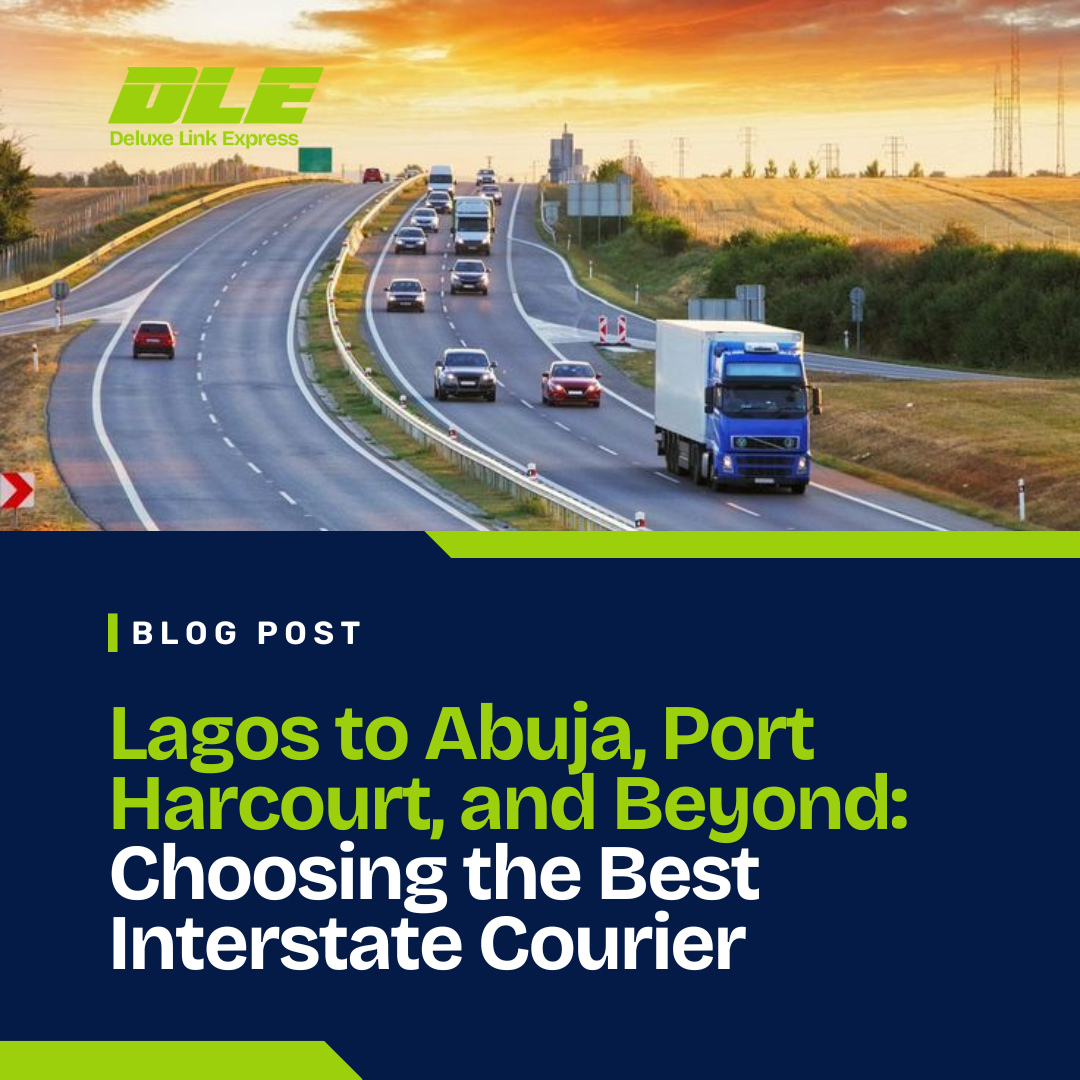
<p>Sending a package from Lagos to another state shouldn’t feel stressful but for many people, it does.<br>Will it arrive on time? Will it get damaged? Will anyone update you along the way?</p> <p>Whether you’re arranging a Lagos to Abuja delivery, shipping to Port Harcourt, or sending parcels from Lagos to other states in Nigeria, these concerns are valid. That’s why choosing the <a href=\"https://www.dle.com.ng/\">right interstate courier from Lagos</a> is one of the most important logistics decisions you can make.</p> <p> </p> <h2><strong>Why Speed Matters for Interstate Delivery from Lagos</strong></h2> <p>When shipping interstate, speed isn’t a luxury it’s a necessity. Delayed deliveries can disrupt business operations, disappoint customers, and create unnecessary tension.</p> <p>A<a href=\"https://www.dle.com.ng/\"> reliable interstate delivery service in Nigeria</a> operates on structured routes and realistic timelines. Deluxe Link Express (DLE) runs established interstate routes connecting Lagos to Abuja, Port Harcourt, and major cities nationwide, helping ensure your package moves without unnecessary delays.</p> <p>For you, this means:</p> <ul type=\"disc\"> <li>Faster delivery timelines</li> <li>Fewer follow-ups</li> <li>Greater confidence that your shipment will arrive when expected</li> </ul> <p> </p> <blockquote><strong>Safe Handling Is Non-Negotiable When Shipping Interstate</strong></blockquote> <p>Damaged packages cost time, money, and trust. Whether you’re sending documents, business goods, or personal items, your delivery should arrive exactly as you sent it.</p> <p>A dependable logistics company in Lagos understands that careful handling is essential at every stage of transit. At DLE, parcels are handled professionally from pickup to final delivery, helping minimize the risk of damage while in transit.</p> <p>When you ship interstate, peace of mind should come standard.</p> <blockquote><strong>Nationwide Courier Services That Truly Cover Nigeria</strong></blockquote> <p>Many courier companies claim to offer nationwide courier services in Nigeria, but in practice, their service is limited to a few major cities.</p> <p>If you regularly ship from Lagos to other states, consistency matters. Deluxe Link Express operates a growing interstate network that goes beyond Lagos, Abuja, and Port Harcourt allowing you to send packages to multiple locations across Nigeria without changing courier providers.</p> <p>This flexibility is especially valuable for:</p> <p><!-- [if !supportLists]-->· <!--[endif]-->Businesses serving customers nationwide</p> <p><!-- [if !supportLists]-->· <!--[endif]-->Individuals sending items to family and friends</p> <p><!-- [if !supportLists]-->· <!--[endif]-->E-commerce sellers managing interstate orders</p> <blockquote><strong>Clear Communication Throughout the Delivery Process</strong></blockquote> <p>One of the biggest frustrations with interstate shipping is poor communication. No updates. No clarity. Just waiting and hoping.</p> <p>With DLE, communication is built into the delivery process. From pickup to final delivery, customers receive timely updates, so you’re never left guessing about your shipment’s status.</p> <p>This transparency is what separates average courier services from the best interstate courier companies in Nigeria.</p> <blockquote><strong>Affordable Pricing That Delivers Real Value</strong></blockquote> <p>Cost matters but value matters more.</p> <p>Choosing the cheapest courier can result in delayed or lost packages, which often costs more in the long run. Deluxe Link Express focuses on fair and transparent pricing, ensuring you know exactly what you’re paying for without hidden charges.</p> <p>The result?<br>A reliable interstate courier service from Lagos that delivers consistent value not costly mistakes.</p> <blockquote><strong>Why Reliability Is Essential for Frequent Shippers</strong></blockquote> <p>If you ship often, trial-and-error courier services can damage your reputation and slow down your operations.</p> <p>Working with a trusted logistics company in Lagos like Deluxe Link Express allows you to build reliability into your delivery process. Your customers receive their items on time, your business runs smoothly, and you spend less energy managing logistics issues.</p> <p>Reliability isn’t just convenient it’s a competitive advantage.</p> <h2><strong>Make Your Next Lagos Interstate Delivery Stress-Free</strong></h2> <p>Interstate shipping doesn’t have to be complicated. With the right courier, sending packages from Lagos to Abuja, Port Harcourt, or anywhere else in Nigeria becomes simple and predictable.</p> <p>If you’re looking for a reliable interstate courier from Lagos trusted for Lagos to Abuja delivery, Port Harcourt routes, and nationwide shipping <a href=\"https://www.dle.com.ng/\">Deluxe Link Express</a> (DLE) is ready to help.</p> <p> </p> <h2><strong>Ready to Ship from Lagos?</strong></h2> <p>Get started with <a href=\"https://www.dle.com.ng/\">Deluxe Link Express</a> today and enjoy smooth, dependable interstate delivery across Nigeria.</p> <p> </p>

Helen Adesewa
19 Jan 2026
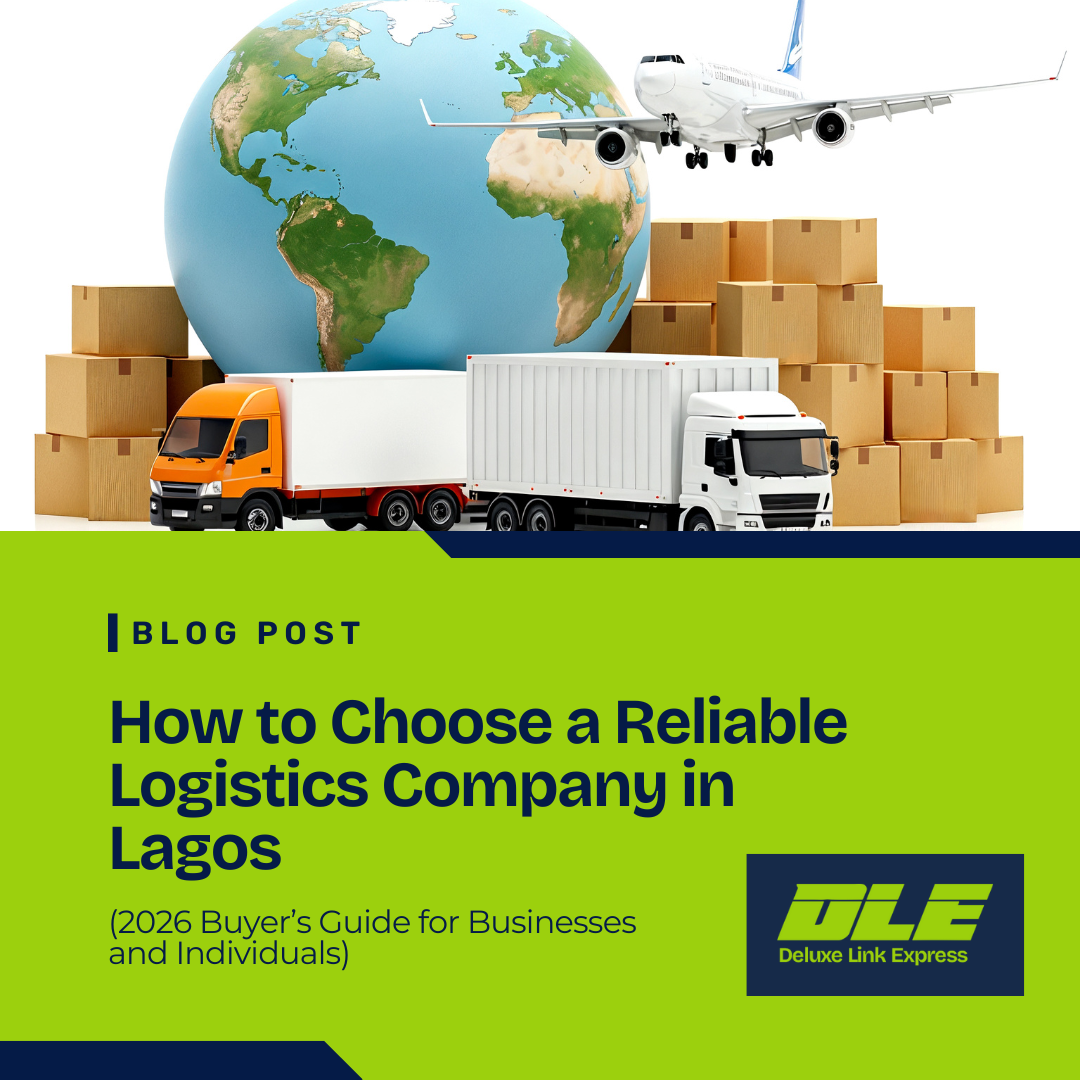
<p>Finding a reliable logistics company in Lagos has become more important than ever. With Lagos remaining Nigeria’s busiest commercial hub in 2026, businesses and individuals now depend heavily on fast, secure, and well-coordinated delivery services to stay competitive.</p> <p>From e-commerce deliveries and business shipments to personal packages and express courier needs, choosing the wrong logistics provider can lead to delays, lost parcels, unhappy customers, and unnecessary costs.</p> <p>This buyer’s guide breaks down how to choose a <a href=\"https://www.dle.com.ng/\">trustworthy logistics company in Lagos</a>, what to look out for, and how to make a smart decision that supports both immediate deliveries and long-term growth.</p> <h2><strong>Why Choosing a Reliable Logistics Company in Lagos Matters</strong></h2> <p>Logistics in Lagos comes with its own realities traffic congestion, long delivery routes, high delivery volumes, and tight customer expectations. A dependable logistics partner helps you move goods efficiently despite these challenges.</p> <p>A reliable logistics company helps you:</p> <ul type=\"disc\"> <li>Meet delivery timelines consistently</li> <li>Reduce failed or delayed deliveries</li> <li>Improve customer experience and trust</li> <li>Handle Lagos Mainland, Island, and interstate deliveries smoothly</li> <li>Scale business operations without logistics setbacks</li> </ul> <p>This is why more businesses are prioritizing professional logistics services in Lagos rather than informal courier options.</p> <h2>7 Key Factors to Consider When choosing a Reliable Logistics Company in Lagos</h2> <blockquote></blockquote> <blockquote><strong>1. Look for Strong Local Presence and Experience</strong></blockquote> <p>One of the first things to check is whether the logistics company truly understands Lagos.</p> <p>A logistics provider with solid local experience will:</p> <ul type=\"disc\"> <li>Know the fastest delivery routes across Lagos</li> <li>Navigate Mainland and Island deliveries efficiently</li> <li>Handle pickups and drop-offs in busy commercial areas</li> <li>Adapt quickly to traffic and route changes</li> </ul> <p>Companies with hands-on experience in <a href=\"https://www.dle.com.ng/services/road-transport\">Lagos logistics</a> are often better positioned to deliver consistently, even during peak periods.</p> <blockquote><strong>2. Confirm the Range of Logistics and Courier Services Offered</strong></blockquote> <p>Not all logistics companies offer the same services, which is why it’s important to choose one that aligns with your needs.</p> <p>A reliable logistics company in Lagos should be able to handle:</p> <ul type=\"disc\"> <li>Same-day and next-day deliveries</li> <li>Door-to-door courier services</li> <li>Business and corporate logistics solutions</li> <li>Parcel, document, and bulk deliveries</li> <li><a href=\"https://www.dle.com.ng/\">Nationwide shipping from Lagos</a></li> <li>Last-mile delivery support</li> </ul> <p>This flexibility is especially useful for businesses managing frequent shipments or customers across multiple locations.</p> <blockquote><strong>3. Tracking, Communication, and Delivery Updates Matter</strong></blockquote> <p>In today’s logistics space, visibility is key.</p> <p>A professional logistics company should provide:</p> <ul type=\"disc\"> <li>Clear delivery communication</li> <li>Shipment tracking or delivery updates</li> <li>Prompt customer support</li> <li>Confirmation upon successful delivery</li> </ul> <p>Good communication reduces uncertainty and builds confidence especially for time-sensitive or high-value deliveries.</p> <blockquote><strong>4. Check Reviews, Reputation, and Customer Feedback</strong></blockquote> <p>Before committing to any courier or logistics service in Lagos, always check what others are saying.</p> <p>Reliable companies often have:</p> <ul type=\"disc\"> <li>Positive online reviews</li> <li>Consistent customer testimonials</li> <li>Strong business referrals</li> <li>An active digital presence</li> </ul> <p>Repeated complaints about late deliveries, missing packages, or poor customer service are red flags you shouldn’t ignore.</p> <blockquote><strong>5. Pricing Should Be Transparent and Reasonable</strong></blockquote> <p>While everyone wants affordable delivery, the cheapest option isn’t always the best.</p> <p>A dependable logistics company will offer:</p> <ul type=\"disc\"> <li>Clear and transparent pricing</li> <li>No hidden charges</li> <li>Fair rates based on delivery distance and service type</li> <li>Flexible pricing for business or bulk shipments</li> </ul> <p>The goal is value dependable service that protects your time, goods, and reputation.</p> <blockquote><strong>6. Safety, Handling, and Accountability Are Essential</strong></blockquote> <p>Your logistics partner should treat your items as valuable.</p> <p>Before choosing a company, ensure they:</p> <ul type=\"disc\"> <li>Handle parcels professionally</li> <li>Have clear delivery procedures</li> <li>Take responsibility for shipments</li> <li>Offer support if issues arise</li> </ul> <p>Reliable logistics services prioritize secure handling and accountability at every stage of delivery.</p> <blockquote><strong>7. Choose a Logistics Partner That Can Grow With You</strong></blockquote> <p>If you’re a business owner, your logistics needs today may not be the same tomorrow.</p> <p>A good logistics company supports growth by offering:</p> <ul type=\"disc\"> <li>Scalable delivery solutions</li> <li>Business logistics support</li> <li>Reliable repeat delivery services</li> <li>Customized shipping options</li> </ul> <p>This makes operations smoother as order volumes increase.</p> <p> </p> <h2><strong>Where Deluxe Link Express Fits In</strong></h2> <p>At <a href=\"https://www.dle.com.ng/\"><strong>Deluxe Link Express</strong></a>, we provide dependable logistics and courier services designed for the realities of Lagos and beyond. Our services are structured to support individuals, small businesses, and growing enterprises that need consistency and reliability.</p> <p>Our logistics solutions include:</p> <ul type=\"disc\"> <li><a href=\"https://www.dle.com.ng/services/air-freight\">Express courier services in Lagos</a></li> <li>Same-day and scheduled deliveries</li> <li>Business logistics support</li> <li>Door-to-door parcel delivery</li> <li>Nationwide shipping solutions</li> <li><span lang=\"EN-US\">Mini warehouse</span></li> </ul> <p>By focusing on efficiency, communication, and professional handling, we help customers move goods with confidence.</p> <h2><strong>Final Thoughts: Making the Right Choice in 2026</strong></h2> <p>Choosing a <a href=\"https://www.dle.com.ng/\">reliable logistics company in Lagos</a> isn’t just about fast delivery<span lang=\"EN-US\">,</span>it’s about finding a partner you can trust.</p> <p>Before making a decision:</p> <ul type=\"disc\"> <li>Compare service offerings</li> <li>Prioritize reliability over low pricing</li> <li>Check reviews and service coverage</li> <li>Choose a logistics company with strong Lagos experience</li> </ul> <p>The right logistics partner can help reduce stress, improve customer satisfaction, and keep your deliveries running smoothly.</p> <p> </p> <h2><strong>Looking for a Reliable Logistics Company in Lagos? </strong></h2> <p>If you’re looking for a logistics provider that understands Lagos delivery challenges and offers dependable courier services,<a href=\"https://www.dle.com.ng/\"> Deluxe Link Express</a> is ready to support your needs.</p> <p><a href=\"https://www.dle.com.ng/\"> <strong>Get in touch today</strong></a> and experience stress-free logistics built for speed, reliability, and growth.</p>

Daniel Aghedo
16 Jan 2026
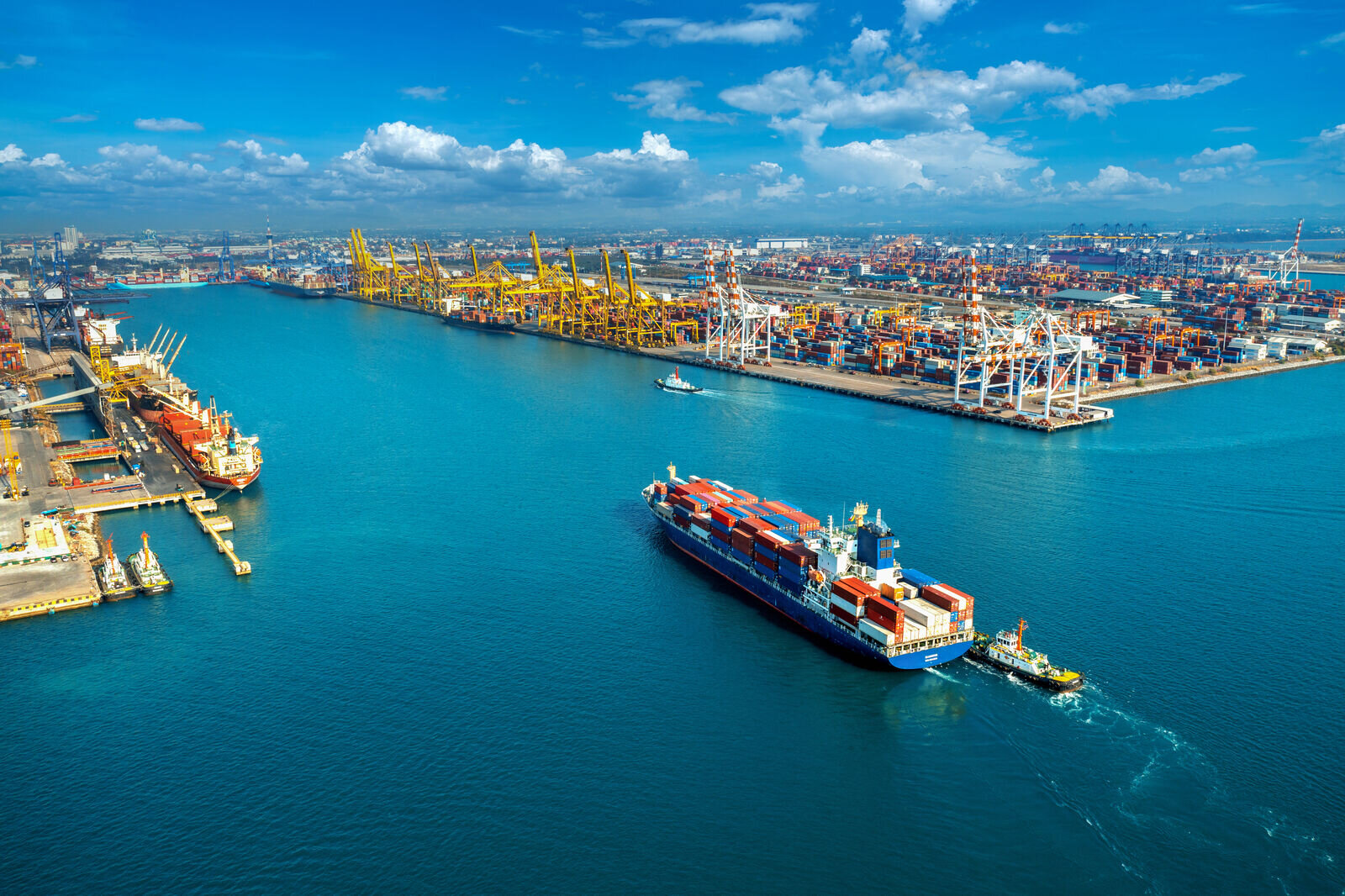
<p>Not all shipments are created equal. Some are oversized, some are fragile, and some are simply too critical to be trusted to standard logistics. In those moments, one missed clearance, one delay at the port, or one wrong handling decision can derail operations, waste resources, and frustrate clients.</p> <p>That’s where Project Cargo proves its true value.<br>This isn’t about moving boxes. It’s about managing complexity with foresight. Every stage of the journey—pickup, documentation, customs clearance, freight, consolidation, and final delivery—is handled with precision. Each detail is tailored to the unique demands of the cargo, so that businesses don’t have to gamble with uncertainty.</p> <p>Think about industries where downtime costs millions, or sectors where equipment must arrive intact and operational. In these spaces, the difference isn’t measured in kilometres travelled, but in risks avoided. Project Cargo offers flexibility to match different needs—whether full end-to-end delivery, partial support at critical stages, or specialised handling for unique cargo.</p> <p>The strength lies in combining local expertise with global standards. Navigating Nigeria’s congested ports, unpredictable customs procedures, and challenging road networks requires more than a courier. It requires partners who understand the terrain, anticipate bottlenecks, and provide real-time visibility that keeps businesses in control.</p> <p>At its core, Project Cargo isn’t just logistics—it’s assurance. Assurance that shipments arrive as planned. Assurance that sensitive investments are protected. And assurance that businesses can stay focused on growth rather than worrying about what’s happening in transit.</p> <p>With tailored options, transparency at every step, and specialised care for unique cargo, Project Cargo ensures that your shipment doesn’t just move—it moves with certainty.<br>Because when every detail matters, the right logistics solution makes all the difference.</p>

Odoh Tobe
12 Sep 2025
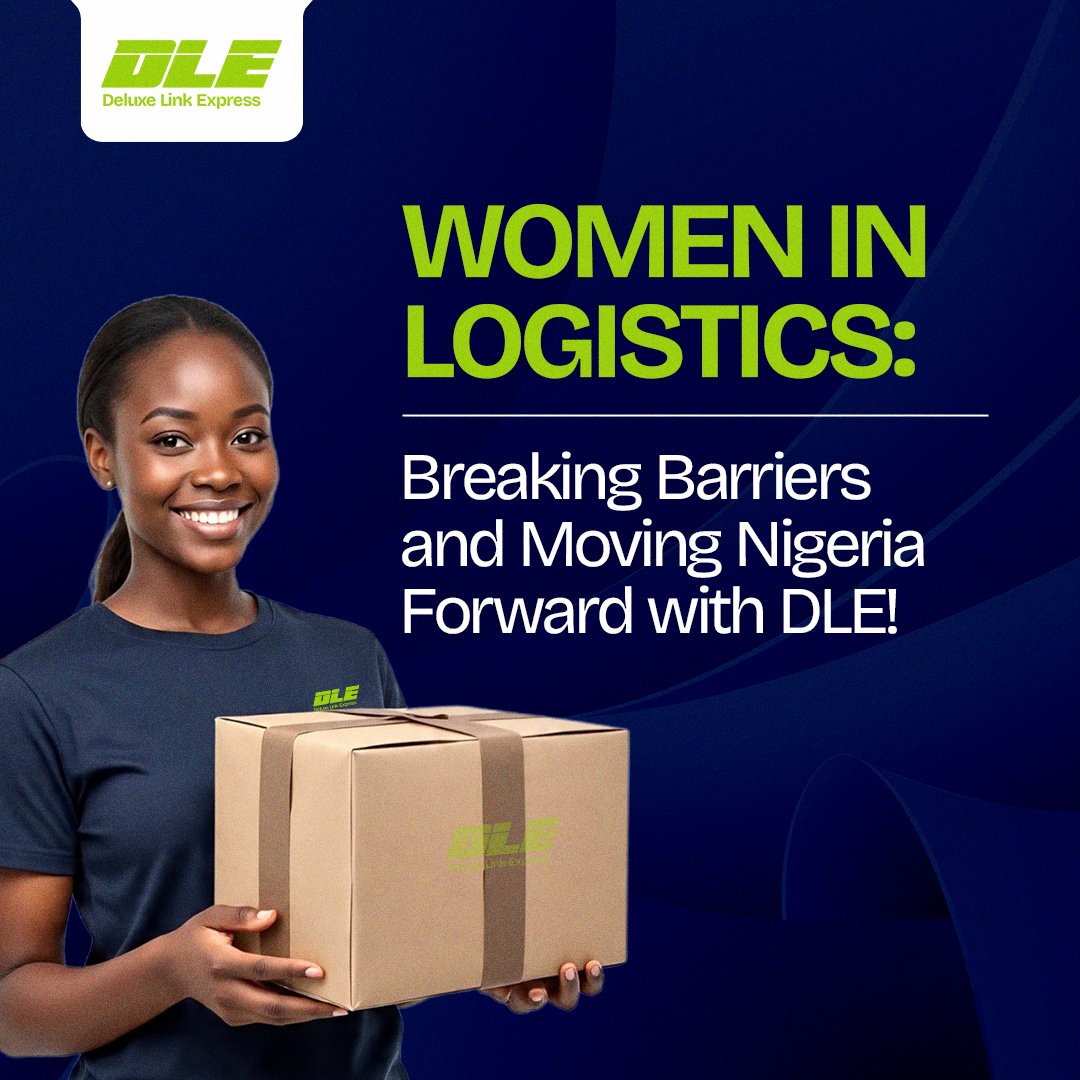
<p id="ember2654">Women in Logistics: Breaking Barriers and Moving Nigeria Forward with DLE</p> <p id="ember2655">The sound of trucks on highways, the busy movement at ports, and the careful flow of goods across the country – logistics is the backbone of Nigeria’s economy. It keeps businesses running and communities connected. This growing industry contributes a large portion to our national GDP and provides jobs for millions.</p> <p id="ember2656">But for a long time, logistics has been seen as a “man’s job,” especially in areas like driving, warehousing, and supply chain management. This idea, shaped by old beliefs and cultural norms, has made it harder for women to enter and grow in the field.</p> <p id="ember2657">In Nigeria, women make up only about 30% of the wider transport sector – and just 10% in land transport. Many face doubts about their ability to handle physically demanding or leadership roles. Others struggle to get the training or mentorship they need, and safety concerns or poor work-life balance can make the job even harder. Market women, who play a big role in distributing goods informally, also face challenges like lack of funding, unsafe travel conditions in the early morning, and little access to transport for their small loads.</p> <p id="ember2658">Times Are Changing: New Opportunities for Women</p> <p id="ember2659">Despite these obstacles, things are improving. More people now understand that women bring great value to logistics – especially in leadership and decision-making roles. As African trade continues to grow, so does the need for skilled workers. This is a chance to get more women into important positions and close the gender gap.</p> <p id="ember2660">Technology is also helping. With tools like delivery tracking, route planning apps, and warehouse software, many roles are now less about physical strength and more about smart thinking and tech skills – areas where women thrive. Groups like the Ladies on Wheel Association of Nigeria are also speaking up, creating awareness, and supporting female drivers as professionals.</p> <p id="ember2661">DLE’s Role in Driving Change</p> <p id="ember2662">At Deluxe Link Express (DLE), we believe diversity isn’t just the right thing – it’s the smart thing. We are building a workplace where women are empowered to grow, lead, and succeed.</p> <p id="ember2663">Here’s how we’re making that happen:</p> <p id="ember2664">Inclusive Hiring and Growth: We actively hire and promote women across all roles – from drivers and warehouse staff to supervisors and managers – giving everyone a fair shot to rise.</p> <p id="ember2665">Mentorship and Guidance: We support mentorship programs that connect women with experienced professionals who can guide and inspire them to aim higher.</p> <p id="ember2666">Safe and Supportive Workplaces: We enforce strict policies to prevent harassment or discrimination and create a space where everyone feels respected and safe.</p> <p id="ember2667">Work-Life Support: We understand the pressure of balancing work and home life. That’s why we explore flexible schedules and support systems to help our team members stay strong in both areas.</p> <p id="ember2668">Women bring new ideas, fresh perspectives, and strong resilience. Companies that embrace gender diversity are better prepared to face the future. At DLE, we’re not just talking about inclusion – we’re making it happen. By supporting women and giving them space to shine, we’re helping to build a logistics industry – and a Nigeria – that works for everyone.</p> <p id="ember2669">Want to work with a logistics company that values inclusion and progress?</p> <p id="ember2670">Visit <a tabindex="0" href="http://www.dle.com.ng/" target="_self" data-test-app-aware-link="">www.dle.com.ng</a> to explore our services and learn more about our commitment to a fairer future.</p>

Odoh Tobe
25 Jul 2025

<p id="ember2441">Ever wondered what happens after you hit “Book Now” on your same-day delivery with DLE?</p> <p id="ember2442">Well, it’s more than just a bike and a box. A lot goes on behind the scenes to make sure your package gets to where it needs to be—fast, safe, and without stress.</p> <p id="ember2443">Here’s how we make same-day delivery in Lagos work like magic (well, almost):</p> <h3 id="ember2444">Step 1: You Book. We Move—Immediately.</h3> <p id="ember2445">The second you book a shipment via <a tabindex="0" href="http://www.dle.com.ng/" target="_self" data-test-app-aware-link="">www.dle.com.ng</a> or slide into our DMs, your order goes straight into our system.</p> <p id="ember2446">We don’t wait around. Your request is picked up by our dispatch system and matched with a nearby delivery partner who is already on standby. No calls. No queues. Just a quick, tech-enabled response.</p> <p id="ember2447">We understand that when you say <em>“same-day,”</em> you mean it. That’s why we treat every booking with urgency.</p> <h3 id="ember2448">Step 2: We Outsmart Lagos Traffic</h3> <p id="ember2449">Anyone who lives here knows that Lagos traffic doesn’t play. That’s why we’ve invested in smart routing tools that help us navigate the city’s busiest routes in real-time.</p> <p id="ember2450">We calculate the fastest and safest route for your delivery—from pickup to drop-off—taking into account road conditions, traffic jams, and time of day.</p> <p id="ember2451">Whether it’s Ikoyi to Festac or Ikeja to Lekki, our riders know the shortcuts, the back roads, and how to avoid unnecessary delays.</p> <h3 id="ember2452">Step 3: Trained Riders, Trusted Hands</h3> <p id="ember2453">We don’t work with just anyone.</p> <p id="ember2454">Our company trains reliable and professional delivery riders. They understand how to handle fragile packages, communicate clearly, and show up on time, every time.</p> <p id="ember2455">They’re the real heroes of this operation, and they care just as much as you do about getting your delivery there safely.</p> <p id="ember2456">We also keep you updated every step of the way—so you’re never left wondering where your package is.</p> <h3 id="ember2457">Step 4: Done and Dusted—Without the Drama</h3> <p id="ember2458">The moment your delivery is completed, you get a confirmation instantly. No follow-ups, no long stories.</p> <p id="ember2459">Just smooth service from start to finish.</p> <h3 id="ember2460">Why We Do It</h3> <p id="ember2461">We built our same-day delivery service to make life easier for everyday people and businesses in Lagos.</p> <p id="ember2462">Because we’ve been there, stuck in traffic with a client waiting. Or calling dispatch riders who never show. Or losing a deal because something didn’t arrive on time.</p> <p id="ember2463">With DLE, you don’t have to worry about any of that. You book. We handle the rest.</p> <h3 id="ember2464">And the Best Part? It’s just ₦2,500.</h3> <p id="ember2465">You don’t have to break the bank to get reliable, same-day delivery in Lagos. For just <strong>₦2,500</strong>, we’ll pick up and drop off your package anywhere within the city, without stress.</p> <p id="ember2466">No hidden charges. No surprises in the “terms and conditions”. Just value you can count on.</p> <h3 id="ember2467">Ready to Try It?</h3> <p id="ember2468">Got something that needs to go today? Click <a tabindex="0" href="http://www.dle.com.ng/" target="_self" data-test-app-aware-link="">www.dle.com.ng</a> or send us a DM to book a delivery in seconds.</p>

Odoh Tobe
18 Jul 2025

<p id="ember1416">At DLE, we know that fast and reliable delivery depends on one key thing—<strong>our riders</strong>. That’s why we started the <strong>DLE Rider Academy</strong>—a training program that helps new and existing riders become more skilled, safe, and professional on the road.</p> <h3 id="ember1417">What the Rider Academy is All About</h3> <p id="ember1418">The DLE Rider Academy gives riders the training they need to succeed. From handling Lagos traffic to delivering packages on time and treating customers with respect, our riders learn it all. Some key areas we focus on include:</p> <p id="ember1419"></p> <ul> <li><strong>Safe riding practices</strong></li> <li><strong>Customer service skills</strong></li> <li><strong>Using delivery apps and route tools</strong></li> <li><strong>Time management and delivery tips</strong></li> </ul> <p> </p> <p id="ember1420">Our goal is to turn everyday riders into <strong>delivery pros</strong> who can handle anything the road throws at them.</p> <h3 id="ember1421">How We Train</h3> <p id="ember1422">The training is simple, practical, and hands-on. Riders go through:</p> <p id="ember1423"></p> <ol> <li><strong>Introduction sessions</strong> – They learn about DLE, our values, and the tools they’ll use.</li> <li><strong>Real-life practice</strong> – From riding drills to using GPS and managing deliveries.</li> <li><strong>Tech training</strong> – How to use the DLE rider app, follow routes, and track performance.</li> <li><strong>Mentorship & support</strong> – They get guidance from experienced riders and team leads.</li> </ol> <p> </p> <h3 id="ember1424">More Than Just Delivery</h3> <p id="ember1425">The Rider Academy isn’t just about better deliveries. It’s also helping our riders build stable careers and grow. Many of our trained riders have moved into team lead and support roles. Others now earn more because they’re faster, safer, and get great feedback from customers.</p> <h3 id="ember1426">Results That Matter</h3> <p id="ember1427">Since we launched the academy, we’ve seen:</p> <p id="ember1428"></p> <ul> <li>Fewer delivery mistakes and accidents</li> <li>Quicker delivery times</li> <li>Happier customers who keep coming back</li> </ul> <p> </p> <h3 id="ember1429">Building a Better Future</h3> <p id="ember1430">Our Rider Academy is proof that when you invest in people, everyone wins. We’re proud of how far our riders have come—and we’re just getting started.</p> <p id="ember1431">If you believe in building skills and changing lives, we’d love to connect. Let’s work together to create a better delivery industry—one rider at a time.</p>

Odoh Tobe
18 Jul 2025

<p data-sourcepos="7:1-7:505">In today's interconnected global economy, efficient logistics are not just a convenience—they are a competitive necessity. For Nigerian businesses looking to expand their reach, source materials internationally, or export local products, <strong>sea freight from Nigeria</strong> stands as a cornerstone of cost-effective and high-capacity shipping. Deluxe Link Express (DLE) is revolutionizing this space, transforming complex <strong>international shipping</strong> into a streamlined, transparent, and highly beneficial process.</p> <p data-sourcepos="9:1-9:180">This article delves into the core advantages of choosing sea freight and illustrates how DLE's innovative services amplify these benefits, offering tangible value to your business.</p> <h3 data-sourcepos="11:1-11:60">The Undeniable Benefits of Sea Freight for Your Business</h3> <p data-sourcepos="13:1-13:177">While other shipping methods have their place, sea freight offers unique strategic advantages, particularly for businesses dealing with significant volumes or specialized cargo:</p> <ol data-sourcepos="15:1-26:0"> <li data-sourcepos="15:1-17:0"> <p data-sourcepos="15:5-16:584"><strong>Unmatched Cost-Effectiveness for Bulk Shipments:</strong> For large quantities of goods, heavy machinery, or oversized cargo, sea freight is overwhelmingly the most economical choice. The sheer capacity of modern cargo vessels allows for economies of scale that air or land transport simply cannot match. This translates directly into significantly lower per-unit shipping costs, which is crucial for maintaining competitive pricing in both local and international markets. Businesses importing raw materials or exporting bulk commodities can realize substantial savings, directly impacting their bottom line and improving profit margins.</p> </li> <li data-sourcepos="18:1-20:0"> <p data-sourcepos="18:5-19:578"><strong>Superior Capacity and Versatility:</strong> Sea vessels can transport virtually any type of cargo, from hazardous materials and liquids to vehicles and massive industrial equipment, in quantities that would be impossible or prohibitively expensive via other modes. Whether you need to ship a single pallet (Less than Container Load - LCL) or multiple <strong>shipping containers</strong> (Full Container Load - FCL), sea freight provides the flexibility and capacity to meet diverse logistical demands. This versatility ensures that businesses are not limited by the size or nature of their goods when planning international trade.</p> </li> <li data-sourcepos="21:1-23:0"> <p data-sourcepos="21:5-22:389"><strong>Reduced Environmental Footprint:</strong> For businesses increasingly focused on sustainability, sea freight offers a greener alternative. Per ton-mile, ocean shipping generally produces significantly fewer carbon emissions compared to air freight. Opting for sea transport can contribute to your company's environmental responsibility goals, appealing to eco-conscious consumers and aligning with global sustainability trends.</p> </li> <li data-sourcepos="24:1-26:0"> <p data-sourcepos="24:5-25:314"><strong>Extensive Global Reach:</strong> The vast network of global shipping routes means that sea freight can connect almost any major port in the world. This extensive reach opens up new markets for Nigerian exporters and provides access to a wider range of suppliers for importers, fostering greater diversification and resilience in supply chains.</p> </li> </ol> <h3 data-sourcepos="27:1-27:48">How DLE Elevates Your Sea Freight Experience</h3> <p data-sourcepos="29:1-29:251">DLE doesn't just offer sea freight; we enhance every aspect of the process, turning potential challenges into seamless operations. Our commitment to innovation and customer-centricity ensures you get the most value from your <strong>sea freight logistics</strong>.</p> <ol data-sourcepos="31:1-45:0"> <li data-sourcepos="31:1-33:0"> <p data-sourcepos="31:5-32:681"><strong>Optimizing Cost Management with Transparency:</strong> DLE's platform provides <strong>transparent and competitive pricing</strong> upfront. Beyond just the base freight cost, our system offers <strong>landed cost tracking</strong>. This means you can accurately accrue and understand all associated costs, such as brokerage, duty, and inland freight, from origin to destination. This comprehensive cost visibility empowers you to make informed financial decisions, avoid hidden fees, and accurately price your products for maximum profitability. Furthermore, our <strong>multi-currency support</strong> simplifies international transactions, automatically accounting for exchange rate differences, which is invaluable for businesses dealing with diverse global partners.</p> </li> <li data-sourcepos="34:1-36:0"> <p data-sourcepos="34:5-35:501"><strong>Streamlined Operations for Maximum Efficiency:</strong> We understand that time is money. DLE's intuitive online platform allows for <strong>simplified booking and management</strong>. You can get instant quotes and book your cargo in seconds, saving valuable time for your team. Our system also supports <strong>automated customs processes</strong>, generating necessary declaration forms based on your shipment data. This automation drastically reduces manual paperwork, minimizes errors, and accelerates customs clearance, ensuring your cargo moves without unnecessary delays.</p> </li> <li data-sourcepos="37:1-39:0"> <p data-sourcepos="37:5-38:449"><strong>Unparalleled Visibility and Control with Real-time Tracking:</strong> Gone are the days of uncertainty. DLE provides <strong>real-time tracking and updates</strong> for your shipments. Our interactive map view and detailed shipment logs allow you to monitor your vessel's location and progress through key milestones, from departure to arrival. This constant visibility enables proactive decision-making, better inventory management, and improved communication with your customers, enhancing overall supply chain predictability.</p> </li> <li data-sourcepos="40:1-42:0"> <p data-sourcepos="40:5-41:461"><strong>Hassle-Free Documentation and Compliance:</strong> International trade is governed by a labyrinth of regulations and documentation. DLE simplifies this by providing <strong>integrated SOPs and checklists</strong>, a <strong>template document repository</strong>, and <strong>system and user-defined alerts</strong> for compliance issues or upcoming deadlines. We guide you through the complexities of <strong>import export documentation</strong>, ensuring all paperwork is accurate and submitted on time, significantly reducing the risk of delays or penalties.</p> </li> <li data-sourcepos="43:1-45:0"> <p data-sourcepos="43:5-44:359"><strong>Dedicated Expert Support:</strong> While our technology streamlines processes, DLE never loses the human touch. Our team of experienced logistics professionals provides <strong>dedicated support</strong> every step of the way. From helping you navigate complex regulations to resolving unforeseen issues, our experts are committed to ensuring your <strong>cargo shipping</strong> experience is smooth and successful.</p> </li> </ol> <h3 data-sourcepos="46:1-46:58">Who Benefits from DLE's Enhanced Sea Freight Services?</h3> <ul data-sourcepos="48:1-52:0"> <li data-sourcepos="48:1-48:174"><strong>E-commerce Businesses:</strong> Ensure cost-effective and reliable delivery of bulk inventory from international suppliers or efficient export of products to global customers.</li> <li data-sourcepos="49:1-49:206"><strong>Small and Medium Enterprises (SMEs):</strong> Access global markets and source materials affordably, expanding your business potential without the prohibitive costs often associated with international trade.</li> <li data-sourcepos="50:1-50:195"><strong>Manufacturers & Distributors:</strong> Optimize your supply chain for large-volume raw material imports and finished goods exports, reducing operational costs and improving overall efficiency.</li> <li data-sourcepos="51:1-52:0"><strong>Wholesalers & Retailers:</strong> Maintain competitive pricing by leveraging the cost benefits of sea freight for large inventory movements, ensuring consistent stock availability.</li> </ul> <h3 data-sourcepos="53:1-53:50">Partner with DLE for Your Global Trade Success</h3> <p data-sourcepos="55:1-55:359">In a world where supply chain resilience and efficiency are paramount, choosing the right <strong>freight forwarding services in Nigeria</strong> can be a game-changer. DLE combines the inherent advantages of sea freight with cutting-edge technology and expert support, offering a truly seamless and value-driven solution for your <strong>import and export from Nigeria</strong> needs.</p> <p data-sourcepos="57:1-57:51"><strong>Ready to transform your international shipping?</strong></p> <p data-sourcepos="59:1-59:154"><strong>Get a Free Sea Freight Quote Today!</strong> Visit our website or contact our team to discover how DLE can empower your business to thrive on the global stage.</p> <p data-sourcepos="57:1-57:201"> </p>

Odoh Tobe
23 Jun 2025

<h1>Air Freight from Nigeria to 220 Countries – What You Need to Know</h1> <p>Nigeria is a major hub for air freight shipping to countries around the world. Whether you're a business exporting goods or sending personal items, here's everything you need to know about air freight from Nigeria.</p> <h2>Why Choose Air Freight from Nigeria?</h2> <p>Air freight offers fast, reliable shipping from Nigeria to over 220 countries worldwide. Nigeria's main airports in Lagos and Abuja connect to major cities across Africa, Europe, Asia, North America, and beyond.</p> <h3>Key Benefits</h3> <ul> <li><strong>Fast delivery</strong>: 1-7 days to most destinations</li> <li><strong>Secure</strong>: Better security than other shipping methods</li> <li><strong>Reliable</strong>: Airlines follow strict schedules</li> <li><strong>Global reach</strong>: Connects to all continents</li> </ul> <h2>Main Nigerian Airports for Air Freight</h2> <h3>Lagos (Murtala Muhammed International Airport)</h3> <p>Nigeria's busiest cargo airport, handling 80% of air freight. Direct flights to London, Dubai, Atlanta, Amsterdam, and other major cities.</p> <h3>Abuja (Nnamdi Azikiwe International Airport)</h3> <p>Second main hub, especially for government and diplomatic cargo.</p> <h3>Other Airports</h3> <p>Port Harcourt, Kano, and Enugu also handle air freight, mainly for regional shipments.</p> <h2>Popular Destinations</h2> <p><strong>North America</strong>: USA (New York, Los Angeles, Atlanta), Canada (Toronto, Vancouver)</p> <p><strong>Europe</strong>: UK (London), Germany (Frankfurt), France (Paris), Netherlands (Amsterdam)</p> <p><strong>Asia</strong>: China (Beijing, Shanghai), UAE (Dubai), India (Mumbai), Singapore, Japan (Tokyo)</p> <p><strong>Africa</strong>: South Africa (Johannesburg), Egypt (Cairo), Kenya (Nairobi), Ghana (Accra)</p> <p><strong>Oceania</strong>: Australia (Sydney), New Zealand (Auckland)</p> <h2>What Can You Ship?</h2> <h3>Business Goods</h3> <ul> <li>Electronics and phones</li> <li>Medicine and medical supplies</li> <li>Clothes and textiles</li> <li>Car parts</li> <li>Fresh food</li> <li>Important documents</li> </ul> <h3>Personal Items</h3> <ul> <li>Household goods</li> <li>Personal documents</li> <li>Gifts</li> <li>Books and materials</li> </ul> <h2>How Much Does It Cost?</h2> <p>Air freight costs depend on:</p> <ul> <li><strong>Weight and size</strong> of your shipment</li> <li><strong>Distance</strong> to destination</li> <li><strong>Type of goods</strong> (special items cost more)</li> <li><strong>Season</strong> (holidays are more expensive)</li> <li><strong>Fuel prices</strong></li> </ul> <p>Most companies charge by weight or volume, whichever costs more.</p> <h2>Required Documents</h2> <h3>Basic Documents</h3> <ul> <li>Invoice showing what you're shipping</li> <li>Packing list</li> <li>Air waybill (shipping receipt)</li> <li>Export license (if needed)</li> <li>Certificate of origin</li> <li>Insurance papers</li> </ul> <h3>Special Requirements</h3> <p>Some countries need extra documents like health certificates for food or import permits for certain goods.</p> <h2>How Long Does Shipping Take?</h2> <ul> <li><strong>Africa</strong>: 1-3 days</li> <li><strong>Europe</strong>: 2-4 days</li> <li><strong>North America</strong>: 3-5 days</li> <li><strong>Asia</strong>: 2-5 days</li> <li><strong>Australia/New Zealand</strong>: 4-7 days</li> </ul> <p>Times may vary based on customs clearance and connecting flights.</p> <h2>Choosing a Freight Company</h2> <h3>What to Look For</h3> <ul> <li>Good reputation and reviews</li> <li>Strong airline partnerships</li> <li>Clear pricing with no hidden fees</li> <li>Online tracking systems</li> <li>Help with customs paperwork</li> </ul> <h3>Questions to Ask</h3> <ul> <li>Which airlines do you use for my destination?</li> <li>Do you handle customs clearance?</li> <li>What insurance do you offer?</li> <li>Can you deliver door-to-door?</li> <li>What's your average delivery time?</li> </ul> <h2>Items You Cannot Ship</h2> <p><strong>Prohibited Items</strong>:</p> <ul> <li>Explosives</li> <li>Flammable liquids</li> <li>Toxic chemicals</li> <li>Radioactive materials</li> <li>Certain batteries</li> </ul> <p><strong>Restricted Items</strong> (need special permits):</p> <ul> <li>Medicine</li> <li>Wildlife products</li> <li>Cultural items</li> <li>Gold and precious stones</li> </ul> <h2>Insurance Options</h2> <h3>Types of Coverage</h3> <ul> <li><strong>Full coverage</strong>: Protects against most damage or loss</li> <li><strong>Total loss only</strong>: Covers complete loss but not partial damage</li> <li><strong>Door-to-door</strong>: Coverage from pickup to delivery</li> </ul> <p>Always insure valuable shipments to protect against loss or damage.</p> <h2>Packaging Tips</h2> <ul> <li>Use strong, lightweight boxes</li> <li>Add plenty of cushioning for fragile items</li> <li>Label boxes clearly</li> <li>Follow airline rules for special items</li> <li>Keep packaging as light as possible to save costs</li> </ul> <h2>Tracking Your Shipment</h2> <p>Most freight companies offer:</p> <ul> <li>Real-time tracking online</li> <li>Email and SMS updates</li> <li>Mobile apps for checking status</li> <li>Customer service support</li> </ul> <h2>Tips for Success</h2> <h3>Before Shipping</h3> <ul> <li>Get quotes from multiple companies</li> <li>Prepare all documents correctly</li> <li>Check destination country import rules</li> <li>Book early during busy seasons</li> </ul> <h3>During Shipping</h3> <ul> <li>Keep copies of all papers</li> <li>Respond quickly to requests for information</li> <li>Track your shipment regularly</li> <li>Stay in contact with your freight company</li> </ul> <h2>Costs to Consider</h2> <p>Beyond shipping fees, budget for:</p> <ul> <li>Insurance</li> <li>Customs duties at destination</li> <li>Local delivery charges</li> <li>Storage fees if delayed</li> <li>Documentation fees</li> </ul> <h2>Common Mistakes to Avoid</h2> <ul> <li>Not checking prohibited items lists</li> <li>Incomplete or wrong documentation</li> <li>Poor packaging leading to damage</li> <li>Not buying insurance for valuable items</li> <li>Choosing companies based on price alone</li> </ul> <h2>Future of Nigerian Air Freight</h2> <p>Nigeria continues to improve its airports and cargo facilities. New trade agreements in Africa and growing e-commerce will increase air freight opportunities. Technology improvements will make tracking and shipping even easier.</p> <h2>Getting Started</h2> <p>To ship air freight from Nigeria:</p> <ol> <li><strong>Get quotes</strong> from 3-5 freight companies</li> <li><strong>Compare services</strong> not just prices</li> <li><strong>Prepare your documents</strong> early</li> <li><strong>Package items properly</strong></li> <li><strong>Buy insurance</strong> for valuable goods</li> <li><strong>Track your shipment</strong> throughout delivery</li> </ol> <p>Air freight from Nigeria offers fast, reliable shipping to anywhere in the world. With proper planning and the right freight company, you can successfully ship goods to any of the 220+ countries served by Nigerian airports.</p>

Odoh Tobe
04 Jun 2025

<p>If you're a small vendor, especially in Nigeria’s fast-paced e-commerce space, you already know that delivery can make or break your business. One late delivery or misplaced item, and your customer might never return. Yet, many vendors continue to repeat common mistakes that cost them money, time, and customer trust.</p> <p>Let’s break down these mistakes — and how you can avoid them.</p> <p><strong>1. Not Having a Clear Delivery Process</strong></p> <p>The mistake:<br>Many small vendors treat delivery like an afterthought. They focus on selling but scramble when it’s time to send out an order — no clear system, no timeline, and sometimes, no delivery partner at all.</p> <p><strong>The fix:</strong><br>Create a simple, step-by-step delivery process. Know what happens after payment is made: how the item is packed, when it leaves your location, who delivers it, and how long it takes. This builds predictability and trust.</p> <p> </p> <p><img title="close-up-delivery-person-with-parcels (1).jpg" src="https://cdn.dle.com.ng/media/uploads/2025/05/image_681c63a25a717.jpg" alt="" width="592" height="400"></p> <p> </p> <p><strong>2. Using Friends or Random Riders</strong></p> <p><br>The mistake:<br>To save money, some vendors use "a guy that rides bike" they know personally, or even a cousin or friend. While this may seem convenient, it often leads to unprofessional service, delays, and zero accountability when things go wrong.</p> <p>The fix:<br>Work with a professional logistics company that offers structured operations, trained riders, tracking, and real-time support. It may cost slightly more upfront, but it saves you in customer satisfaction and brand reputation.</p> <p> </p> <p><strong>3. Poor Communication with Customers</strong></p> <p><br>The mistake:<br>Customers are left in the dark after paying. No updates, no tracking info, no estimated time of arrival (ETA). This makes people anxious, especially first-time buyers.</p> <p>The fix:<br>Always send order confirmations, share delivery timelines, and offer real-time updates when possible. Even a simple WhatsApp message like “Your item is on the way and should arrive in 45 mins” makes a big difference.</p> <p> </p> <p><strong>4. Ignoring Delivery Feedback</strong></p> <p><br>The mistake:<br>Some vendors don't ask how the delivery went. Others ignore complaints, assuming the issue ends with the delivery.</p> <p>The fix:<br>Delivery is part of the customer experience. Check in with customers after delivery. Ask: “Did you get your order in good time?” This feedback helps you spot problems early and keeps your customers feeling valued.</p> <p> </p> <p><strong>5. Offering Unrealistic Delivery Promises</strong></p> <p><br>The mistake:<br>Telling customers you offer same-day delivery anywhere in Lagos when you don’t have the capacity. Overpromising leads to underdelivering — and trust is hard to rebuild.</p> <p>The fix:<br>Be honest and clear about your delivery timelines. If it’s 24–48 hours, say so. Customers value transparency more than vague or exaggerated promises.</p> <p> </p> <p><strong>6. Not Factoring Delivery Costs Into Pricing</strong></p> <p><br>The mistake:<br>Selling at a low price, then realizing later that delivery will eat up your profit — or worse, asking the customer for more money after they’ve paid.</p> <p>The fix:<br>Always calculate your average delivery cost and factor it into your pricing, or clearly state it as a separate charge. No one likes surprises after payment.</p> <p>The Bottom Line<br>Your product might be amazing, but if the delivery is poor, your business will suffer. Avoiding these common mistakes can put you ahead of many vendors who still treat logistics like an afterthought.</p> <p>Want to make your delivery process smoother?<br>Work with a logistics partner like DLE that offers real-time tracking, trained dispatchers, and nationwide reach.</p> <p>Let your customers experience delivery the way it should be — fast, smooth, and professional.</p>

Odoh Tobe
08 May 2025
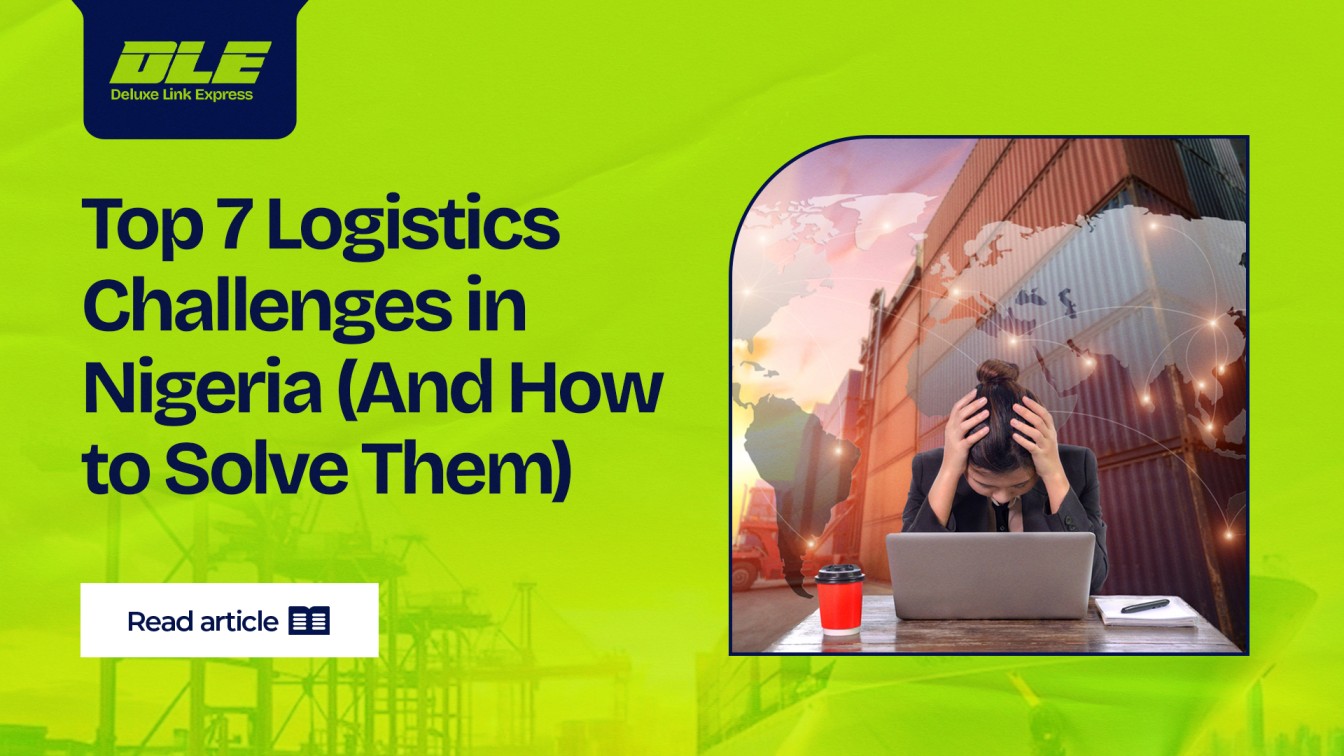
<p>Running a business in Nigeria comes with its own set of challenges. And if you're in e-commerce or distribution, logistics is probably one of your biggest headaches.</p> <p>Here are the top 7 logistics challenges businesses face in Nigeria — and practical solutions to overcome them.</p> <p>1. Unreliable Delivery Timeframes<br>Customers want fast delivery. But poor road infrastructure, traffic, and weather can cause delays.</p> <p>Solution: Partner with a logistics provider that offers same-day and next-day delivery and has contingency plans for high-traffic areas.</p> <p>2. Lack of Real-Time Tracking<br>Many delivery services still don’t offer package tracking. This leaves customers anxious and damages trust.</p> <p>Solution: Use a logistics partner with tech-enabled tracking so customers can follow their order in real time — and you stay updated too.</p> <p>3. Inconsistent Customer Service<br>Delayed responses or poor conflict resolution from delivery companies can frustrate your customers and reflect badly on your brand.</p> <p>Solution: Work with a provider that offers 24/7 customer care and supports vendor escalation channels.</p> <p>4. Package Loss or Damage<br>Lost or mishandled goods are costly — especially for small businesses.</p> <p>Solution: Choose a provider that trains their riders and provides insurance or package security protocols.</p> <p>5. Delivery Cost Uncertainty<br>Some logistics partners charge confusing or inconsistent rates.</p> <p>Solution: Use a service that offers transparent pricing and possibly discounts for repeat vendors or bulk deliveries.</p> <p>6. Limited Nationwide Coverage<br>Many businesses want to scale, but some delivery companies only operate in Lagos or a few states.</p> <p>Solution: Find a logistics partner with a national network or structured partnerships across states.</p> <p>7. Lack of Vendor-Focused Support<br>Most logistics platforms focus on the end customer, not the vendor.</p> <p>Solution: Partner with a logistics team that understands vendor needs, offers account management, and marketing support.</p> <p>Final Thoughts:<br>As a vendor or business owner, your logistics provider is an extension of your brand. Don’t settle for one that slows you down.</p> <p>DLE Logistics is built with Nigerian vendors in mind — from real-time tracking to affordable same-day deliveries and dedicated vendor support.</p> <p>Want a reliable partner? Get in touch today</p>

Odoh Tobe
25 Apr 2025
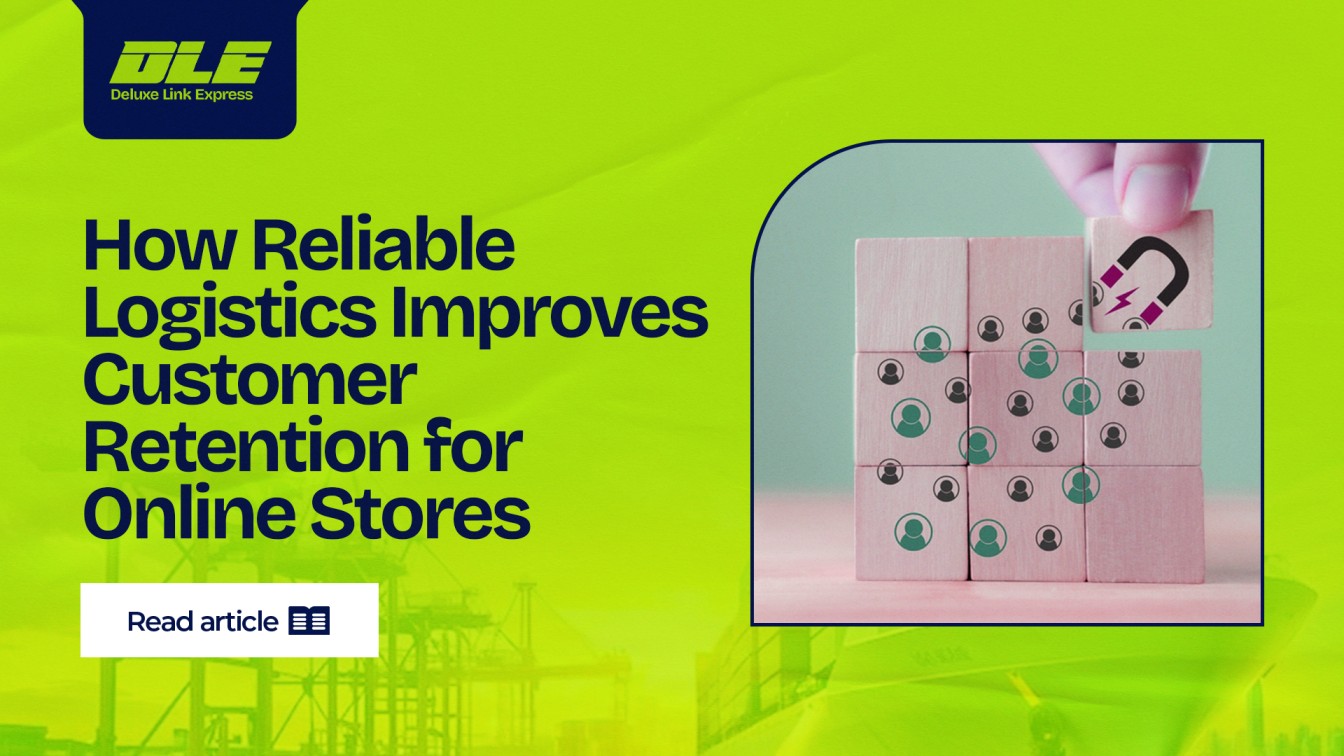
<p>In today’s fast-paced e-commerce world, winning a customer once isn’t enough. The real success lies in keeping them coming back. And one of the most underrated ways to do that? Reliable logistics.</p> <p>For online store owners in Nigeria, where trust and speed are critical, a smooth delivery experience can make or break your customer relationship.</p> <p>Here’s how strong logistics helps you retain more customers:</p> <p> </p> <h1><strong>1. Fast Delivery Builds Trust</strong></h1> <p><br>Customers love convenience. If they know your store consistently delivers on time, they’re more likely to return. Delays without updates damage trust fast — and trust is hard to rebuild.</p> <p>DLE Logistics' same-day and next-day delivery services help brands keep promises and exceed customer expectations.</p> <p><img src="https://cdn.dle.com.ng/media/uploads/2025/04/image_6810bef19f7e8.png" alt="" width="598" height="341"></p> <h1><strong>2. Real-Time Tracking Reduces Anxiety</strong></h1> <p>Your customer wants to know: “Where is my order?” With real-time package tracking, they don’t need to ask — they just check. This transparency builds confidence in your brand.</p> <p> </p> <h1><strong>3. Good Delivery = Better Reviews</strong></h1> <p>Customers who receive their orders quickly and without stress are more likely to leave positive reviews or refer others. Happy delivery = happy word-of-mouth.</p> <p> </p> <h1><strong>4. Fewer Returns, Fewer Complaints</strong></h1> <p><br>Reliable logistics reduce issues like:</p> <p>Damaged goods from poor handling</p> <p>Late deliveries that lead to order cancellations</p> <p>Wrong package deliveries</p> <p>All these affect customer satisfaction and your bottom line.</p> <p> </p> <h1><strong>5. It Makes Your Brand Look Professional</strong></h1> <p><br>Customers judge your brand by every touchpoint. From website to delivery. If your logistics feel organized and intentional, your business feels more premium and dependable.</p> <p>In Summary:<br>Reliable logistics isn’t just about moving packages. It’s about moving your business forward by keeping your customers happy, informed, and loyal.</p> <p>If you're ready to reduce delivery complaints and increase retention, it’s time to switch to a logistics partner that grows with your business.</p> <p>Talk to DLE Logistics today</p>

Odoh Tobe
25 Apr 2025
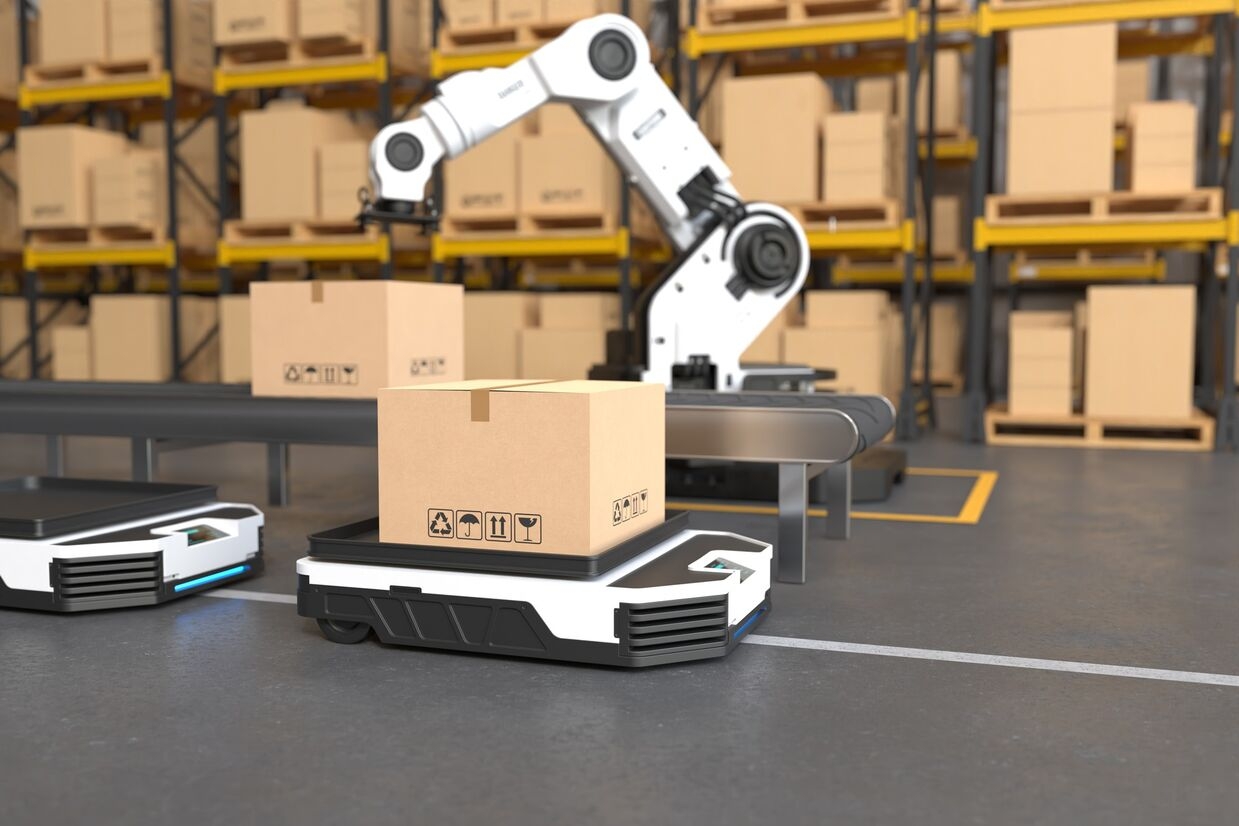
<p>The AI Revolution in Nigerian Logistics The rise of artificial intelligence (AI) is transforming industries worldwide, and logistics is no exception. From route optimization to demand forecasting, AI is reshaping how goods move across Nigeria. As the sector evolves, businesses must not only embrace AI’s benefits but also prepare for its challenges.</p> <p>In Nigeria, where logistics plays a crucial role in commerce—from e-commerce deliveries to large-scale manufacturing supply chains—AI presents an opportunity to boost efficiency, cut costs, and improve reliability. However, its adoption comes with hurdles, including infrastructure constraints and workforce adaptation.<br>How AI is Changing the Logistics Landscape in Nigeria 1. AI is Boosting Efficiency but Also Reshaping Jobs AI-powered logistics systems are helping companies:</p> <p>Optimize delivery routes, reducing fuel costs and travel time.<br>Predict vehicle maintenance needs, extending fleet longevity.<br>Automate warehouse management, minimizing errors and speeding up operations.</p> <p>However, as AI automates traditional logistics roles, businesses must rethink workforce strategies. Rather than seeing AI as a threat, companies should invest in upskilling employees to manage and interact with AI-driven systems.</p> <p><br>Smarter supply chains mean faster and more reliable deliveries. AI enhances supply chain visibility, enabling businesses to predict demand surges and avoid stock-outs. For example, AI-driven inventory management helps retailers and manufacturers keep the right amount of stock at the right time.</p> <p>However, Nigeria’s infrastructure challenges—such as inconsistent power supply and internet connectivity—could slow AI adoption. Logistics firms must work with tech providers to implement AI solutions tailored to the local environment, such as offline-capable AI tools and energy-efficient data centres.</p> <p>AI Cuts Costs, But Global Chip Shortages Pose Challenges ai-driven logistics tools depend on semiconductor chips. The ongoing global chip shortage and US-China trade tensions have affected the availability of these chips, increasing costs and delaying AI implementation.</p> <p>To navigate this, Nigerian logistics firms should prioritize cloud-based AI tools over high-end AI hardware. This reduces reliance on physical AI infrastructure while still leveraging the benefits of machine learning and automation.</p> <p>AI Regulation & Data Security Will Become CriticalAs AI adoption grows in logistics, businesses must prepare for:</p> <p>Stricter data security laws to protect customer and shipment information.<br>Future regulations around autonomous delivery (e.g., drones and self-driving vehicles).</p> <p>Businesses need to start taking AI governance seriously by implementing strong data protection policies and staying ahead of regulatory changes.</p> <p>What Nigerian Businesses Must Do Now To stay competitive in an AI-driven logistics sector, businesses should:</p> <p>Adopt AI early – Start with simple AI tools like automated tracking and predictive analytics before scaling up.</p> <p>Invest in workforce training – Equip employees with the skills to work alongside AI rather than be replaced by it.</p> <p>Stay informed on AI developments – Understand how AI regulations, innovations, and global trends will impact logistics operations in Nigeria.</p> <p>The Future of Logistics in Nigeria is AI-Driven. AI is no longer a futuristic concept—it’s happening now. Businesses that embrace AI-driven logistics will reduce costs, improve efficiency, and gain a competitive advantage in the evolving market.</p> <p>Are you ready for the AI-driven future of logistics? Let’s discuss in the comments!</p>

Odoh Tobe
27 Mar 2025

<p dir="ltr">The oil and gas sector is a dynamic, competitive landscape, requiring companies to adopt innovative strategies to stay ahead. To achieve sustainable growth and profitability, businesses can focus on four core strategies: targeted market segmentation, strategic alliances, streamlined operations, and diversification. These approaches enable companies to address challenges effectively while exploring new opportunities.</p> <p dir="ltr"> </p> <h3 dir="ltr">Understanding and Leveraging Market Segmentation</h3> <p dir="ltr">Market segmentation involves identifying distinct groups within a broader market based on factors like geography, customer preferences, or industry focus. This strategy allows businesses to customize their services and marketing efforts, delivering more personalized solutions. The benefits of this targeted approach include:</p> <ul> <li dir="ltr" aria-level="1"> <p dir="ltr" role="presentation">Enhanced Customer Relationships: Tailored offerings resonate better with specific groups, building trust and loyalty.</p> </li> <li dir="ltr" aria-level="1"> <p dir="ltr" role="presentation">Optimized Marketing Campaigns: Focused efforts lead to higher engagement and return on investment.</p> </li> <li dir="ltr" aria-level="1"> <p dir="ltr" role="presentation">Efficient Resource Utilization: Concentrating resources on high-potential segments ensures maximum impact.</p> </li> </ul> <p> </p> <p dir="ltr">For instance, a company might focus on providing renewable energy solutions in urban areas while targeting traditional oil services to industries in rural locations.</p> <h3 dir="ltr"><br><img src="https://cdn.dle.com.ng/media/uploads/2025/03/image_67dae74b4eb54.jpg" alt="" width="667" height="451"></h3> <h3 dir="ltr"> </h3> <h3 dir="ltr">Forging Strategic Alliances</h3> <p dir="ltr">Collaborating with the right partners can significantly amplify a company's market presence and operational capabilities. Partnerships with producers, distributors, or tech innovators allow companies to:</p> <ul> <li dir="ltr" aria-level="1"> <p dir="ltr" role="presentation">Expand Reach: Entering new markets or strengthening footholds in existing ones becomes easier.</p> </li> <li dir="ltr" aria-level="1"> <p dir="ltr" role="presentation">Share Resources: Pooling expertise and infrastructure reduces costs and operational burdens.</p> </li> <li dir="ltr" aria-level="1"> <p dir="ltr" role="presentation">Deliver Comprehensive Solutions: Collaborations enable end-to-end service delivery, improving customer satisfaction.</p> </li> </ul> <p dir="ltr">An example might be forming a joint venture with a renewable energy company to broaden product offerings and cater to environmentally conscious clients. The key to success lies in selecting partners with complementary strengths and shared objectives.</p> <h3 dir="ltr"> </h3> <h3 dir="ltr"> </h3> <h3 dir="ltr">Boosting Operational Efficiency</h3> <p dir="ltr">Improving operational efficiency is fundamental for maximizing profitability. By embracing advanced technology and refining processes, companies can achieve:</p> <ul> <li dir="ltr" aria-level="1"> <p dir="ltr" role="presentation">Reduced Costs: Automation and improved supply chain management minimize overheads.</p> </li> <li dir="ltr" aria-level="1"> <p dir="ltr" role="presentation">Higher Productivity: Advanced tools and techniques increase output with less waste.</p> </li> <li dir="ltr" aria-level="1"> <p dir="ltr" role="presentation">Resilience to Market Volatility: Proactive risk management ensures stability despite external challenges.</p> </li> </ul> <p dir="ltr">For example, predictive maintenance systems can minimize downtime for critical equipment, ensuring smooth and uninterrupted operations.</p> <h3 dir="ltr"> </h3> <h3 dir="ltr"> </h3> <h3 dir="ltr">Diversifying Offerings and Markets</h3> <p dir="ltr">Diversification reduces dependency on a single revenue stream and helps companies adapt to changing market dynamics. Businesses can achieve this by:</p> <ul> <li dir="ltr" aria-level="1"> <p dir="ltr" role="presentation">Exploring New Markets: Entering previously untapped regions broadens customer bases and increases revenue opportunities.</p> </li> <li dir="ltr" aria-level="1"> <p dir="ltr" role="presentation">Introducing Alternative Energy Solutions: Offering renewable energy options attracts a wider range of clients and aligns with global sustainability trends.</p> </li> <li dir="ltr" aria-level="1"> <p dir="ltr" role="presentation">Expanding Product Lines: Developing innovative products caters to emerging demands, safeguarding against market fluctuations.</p> </li> </ul> <p dir="ltr">For instance, companies traditionally focused on oil extraction could venture into consulting or alternative energy services, opening up new revenue channels while leveraging their expertise.</p> <p><strong> </strong></p> <p dir="ltr"><strong>Laying the Foundation for Long-Term Success</strong></p> <p dir="ltr">By implementing strategies like market segmentation, building strategic partnerships, improving operational efficiency, and diversifying, oil and gas companies can position themselves for success in an ever-evolving industry. Adopting a proactive and innovative approach is key to remaining competitive and achieving sustainable growth.</p> <p dir="ltr"><strong><strong>Looking for a reliable logistics partner to streamline your operations? Visit <a href="http://www.dle.com.ng" target="_new" rel="noopener" data-start="174" data-end="188">www.dle.com.ng</a> or DM us on Instagram @dle_nigeria.</strong></strong></p> <p dir="ltr"><strong>This article was inspired by insights from the Finmodel Labs Blog, a valuable resource for industry strategies.</strong></p> <p dir="ltr"> </p> <p> </p>

Odoh Tobe
19 Mar 2025
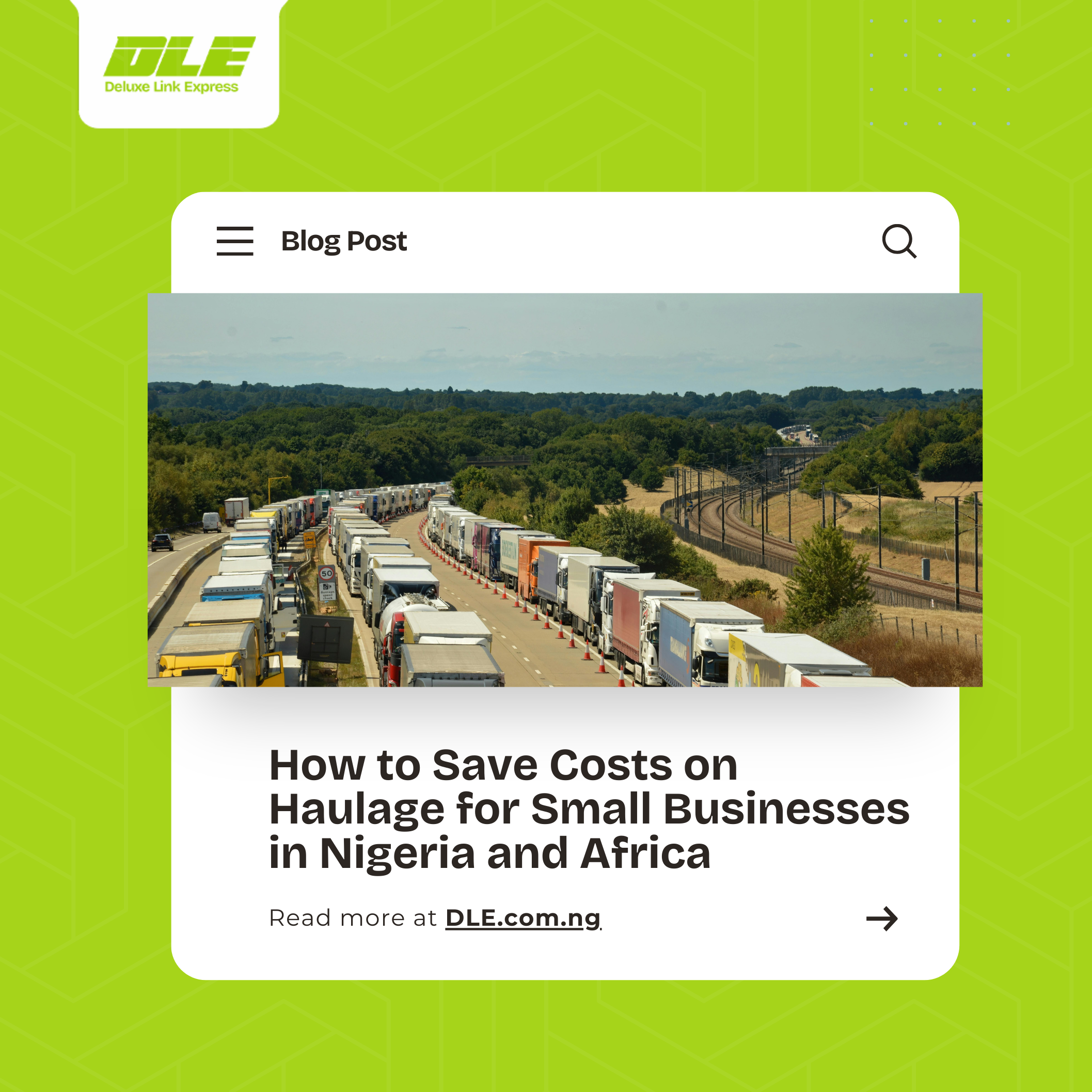
<p>Running a small business in Nigeria or across Africa often means watching every naira, especially when it comes to transportation costs. Here are practical ways to reduce your haulage expenses without sacrificing quality or reliability in the African context.</p> <p><br>Plan Your Routes Carefully<br>Planning efficient routes can save significant fuel and time. Many small businesses in Nigeria see immediate savings by combining multiple deliveries in the same area.</p> <p>Avoiding heavy traffic times in cities like Lagos.</p> <p>Using GPS and route planning apps that work well in Africa to navigate around poor road conditions<br>According to a study by supply chain nuggets, businesses can drastically reduce fuel costs by reducing the distance travelled and idle time.</p> <p>Furthermore, optimized routes allow for more efficient use of vehicles, lowering maintenance costs and increasing fleet lifespan. Your supply chain or business might see significant cost reductions in their operations with fewer kilometers travelled and improved resource allocation.</p> <p>Consider Sharing Loads<br>If you don't have enough goods to fill a truck, look into shared loads with other businesses. This approach is growing in popularity across African markets. Cooperative shipping arrangements can save small businesses between 30-50% compared to booking an entire truck.</p> <p>Negotiate with Local Carriers<br>Don't accept the first quote you receive. Many Nigerian and African carriers are willing to negotiate, especially if you can offer regular business</p> <p>Improve Your Packaging<br>Lighter, more compact packaging means you can fit more items in each shipment. In our experience,optimized packaging can reduce shipping costs by up to 25% through decreased weight and better space utilization.</p> <p>Think About Timing<br>Rush deliveries cost more, especially in Africa where infrastructure challenges can already increase prices. When possible, plan ahead and choose standard shipping options. </p> <p>Consider Using Logistics Aggregators<br>Several African tech startups like Kobo360 and Lori Systems now offer logistics aggregation services, connecting small businesses with available trucks at competitive rates. The increased use of digital information technology in logistics management has resulted in enhanced competitiveness on global scales, by enhancing flow of information, planning, inventory control, packaging/handling, and transportation."</p> <p>Keep Your Vehicles Well-Maintained<br>If you own your delivery vehicles, regular maintenance prevents costly breakdowns on challenging African roads and improves fuel efficiency. In our experience,proper vehicle maintenance can improve fuel economy by up to 30% and significantly reduce breakdown-related delays.</p> <p>Use Mobile Technology to Your Advantage<br>Mobile-based shipping management apps designed for African markets can help you compare rates, track deliveries, and identify inefficiencies. </p> <p>Consider Alternative Fuels Where Available<br>For businesses with their own vehicles, alternatives like CNG (Compressed Natural Gas) or LPG might offer savings in countries like Nigeria where these fuels are available. </p> <p>Both CNG (Compressed Natural Gas) and LPG (Liquefied Petroleum Gas) are considered relatively safe alternative fuels. CNG, being lighter than air, disperses quickly in case of a leak, reducing the risk of fire or explosion ¹ ². On the other hand, LPG is heavier than air and can accumulate near the ground, increasing the potential for ignition and fire hazards.</p> <p>However, it's essential to note that both fuels require proper handling, storage, and maintenance to ensure safety. For instance, CNG tanks must be designed to withstand high pressure, and LPG tanks should be regularly inspected for leaks or damage ¹.</p> <p>In terms of environmental impact, CNG is considered a cleaner-burning fuel than LPG, producing fewer greenhouse gas emissions and air pollutants ². Additionally, CNG vehicles tend to have longer engine lifespans and lower maintenance costs compared to traditional petrol vehicles ².</p> <p>Overall, while both CNG and LPG have their safety considerations, they can be viable and relatively safe alternative fuels for businesses with their own vehicles, especially in countries like Nigeria where they are readily available.</p> <p><br>Join Local Business Associations<br>Many Nigerian and African business associations offer shipping discounts to members. The Small and Medium Enterprises Development Agency of Nigeria (SMEDAN) reports that members save an average of 15% on shipping through their collective bargaining programs.<br>By implementing even a few of these strategies, small businesses across Nigeria and Africa can significantly reduce their haulage costs while maintaining reliable service to their customers.</p> <p>Sources</p> <p><br>https://masgloballogistics.com/2018/11/19/how-to-reduce-haulage-cost-in-nigeria/<br> https://supplychainnuggets.com/route-planning-and-management-in-africa/</p>

Odoh Tobe
13 Mar 2025
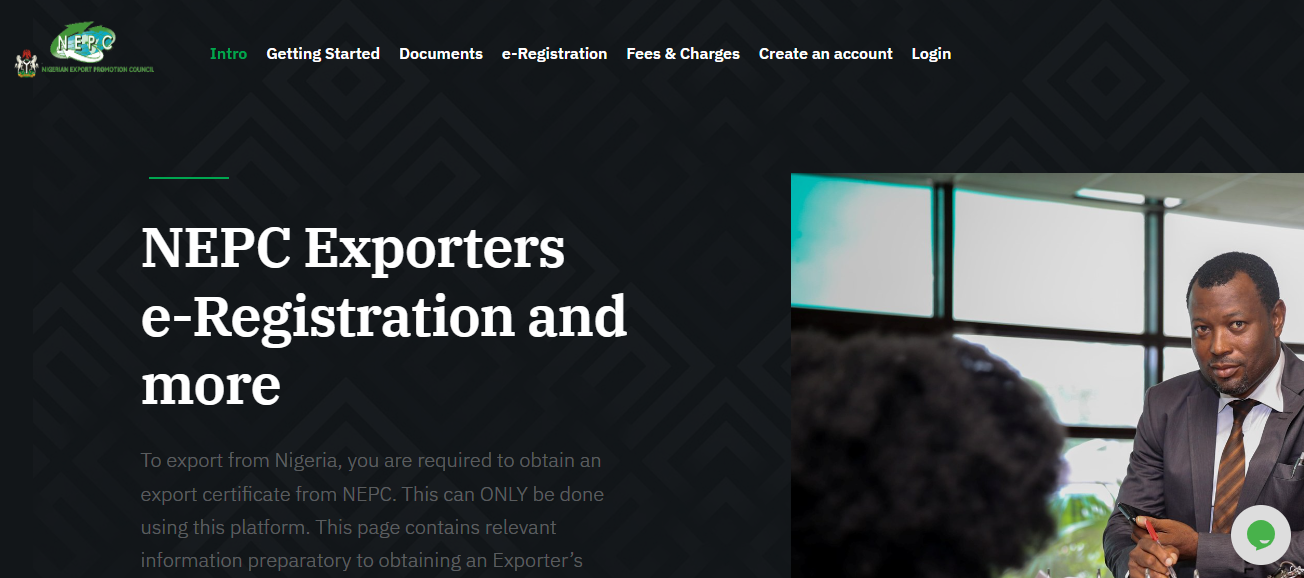
<p>The NEPC (Nigerian Export Promotion Council) certificate is a mandatory requirement for exporters in Nigeria, granting them the authority to ship goods internationally. <br>Here’s a straightforward guide to obtaining your NEPC certificate and expanding your business reach beyond Nigeria.<br>Step 1: Visit the NEPC Portal and Register<br>To begin, go to the official NEPC website at nepc.gov.ng and create an account on the e-registration portal. Have a valid email address and company contact details ready.<br>Step 2: Complete the Application Form<br>After logging in, locate the “New Registration” option to begin the application. You’ll need to provide essential business information, including:<br>• Company details (name, address, phone number)<br>• Tax Identification Number (TIN)<br>• Corporate Affairs Commission (CAC) certificate<br>• Description of your business activities</p> <p>Step 3: Upload Required Documents<br>Prepare the necessary documents to upload on the portal. This typically includes:<br>• CAC certificate (for registered businesses)<br>• Tax Clearance Certificate (if applicable)<br>• Personal identification (e.g., passport or national ID for sole proprietors)</p> <p>Step 4: Pay the Registration Fee<br>The NEPC requires a non-refundable registration fee, which varies based on your business type and scale. Payments can be made through the portal via bank transfer or online payment options. Keep your payment confirmation, as you may need it for verification.</p> <p>Step 5: Application Review and Approval<br>After submission, the NEPC will review your application, which can take up to two weeks. During this period, they may request additional documents or clarification on certain details. Once approved, you’ll receive a digital copy of your NEPC certificate.</p> <p>Step 6: Print and Keep Your Certificate Safe<br>The NEPC certificate is essential for export documentation. Print a copy for your records and to present when processing export transactions or dealing with international clients.</p> <p>Obtaining an NEPC certificate is a key step toward legal export operations in Nigeria. By following these steps, businesses can successfully register, comply with export regulations, and access new international markets confidently.</p> <p> </p>

Odoh Tobe
20 Feb 2025
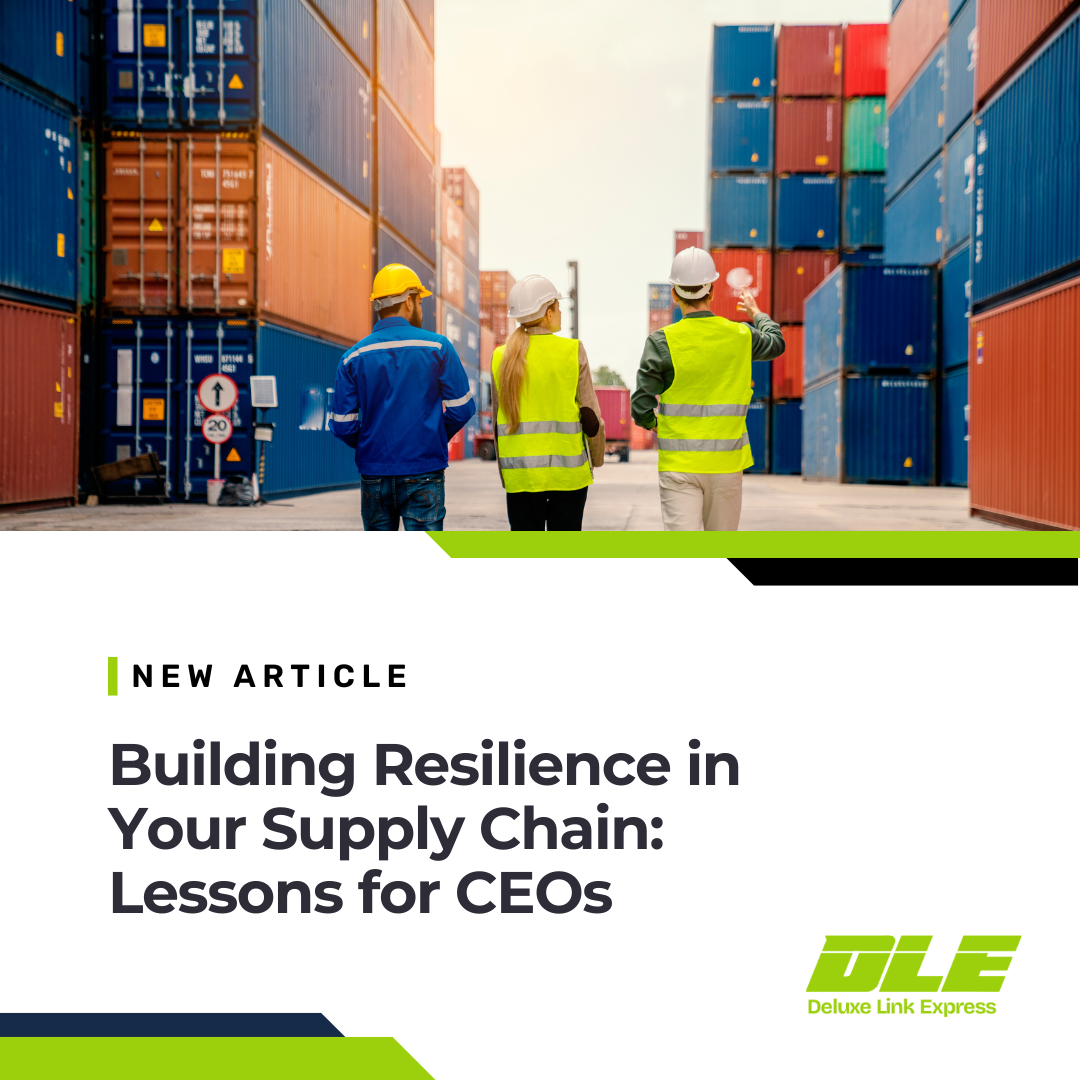
<h2 dir="ltr">Building Resilience in Your Supply Chain: Lessons for CEOs</h2> <p dir="ltr">Recent global events have shown us how easily the flow of goods can break down. Whether it's necessities becoming scarce or manufacturing materials running low, supply problems can affect any business. Here's how to protect your business and keep your products moving smoothly.</p> <h2 dir="ltr">Find Your Weak Spots</h2> <p dir="ltr">Think about making a meal. If you're missing a key ingredient, you can't cook—no matter how many other ingredients you have. Your business works the same way. Look at everything you need to make and deliver your products. Which missing items would stop everything? Those are the areas you need to protect first.</p> <h2 dir="ltr"> </h2> <h2 dir="ltr">Don't Rely on Just One Supplier</h2> <p dir="ltr">Imagine having only one source of water for your home. What would you do if that source dried up? Your business faces similar risks with single suppliers. Find several reliable suppliers in different regions. It might cost more, but it protects your business from unexpected problems.</p> <h2 dir="ltr"><img src="https://cdn.dle.com.ng/media/uploads/2025/02/image_67bdae3c3a49f.jpg" alt="" width="400" height="266"></h2> <h2 dir="ltr">Use Simple Technology to Track Everything</h2> <p dir="ltr">Modern tools can help you watch your supplies and spot problems early. It's like having an early warning system - but for your business. Basic computer systems can show you where your materials are and help you notice issues before they become serious.</p> <h2 dir="ltr">Build Strong Supplier Relationships</h2> <p dir="ltr">Good suppliers are like trusted partners - you need to build trust and support each other. Keep in regular contact. Be fair in your dealings. When difficulties arise, suppliers remember who treated them well. Strong relationships often mean the difference between getting your supplies or facing delays.</p> <h2 dir="ltr">Keep Smart Reserves</h2> <p dir="ltr">Having no backup supplies is like having no food stored at home - it works until something goes wrong. But you don't need massive warehouses full of stock either. Keep extra supplies of your most important items. Think carefully about what your business absolutely needs to keep running.</p> <h2 dir="ltr">Have a Backup Plan</h2> <p dir="ltr">What would you do if your main supplier couldn't deliver? Or if transport routes were blocked? Don't wait for problems - plan for them now. It's like having a backup power source - you hope you won't need it, but you're prepared if you do.</p> <h2 dir="ltr">Consider Local Options</h2> <p dir="ltr">While international suppliers might offer better prices, local suppliers can be valuable partners. They can deliver quickly when needed, and you're less likely to face international shipping delays. Try to find some local suppliers for at least part of your needs.</p> <h2 dir="ltr"><img src="https://cdn.dle.com.ng/media/uploads/2025/02/image_67bdaf0addc0f.jpg" alt="" width="400" height="266"></h2> <h2 dir="ltr">Train Your Team Well</h2> <p dir="ltr">Make sure everyone in your company knows what to do when problems occur. It's like everyone in a household knowing what to do during an emergency. Clear instructions and regular practice help people solve problems quickly.</p> <h2 dir="ltr">Stay Flexible and Learn</h2> <p dir="ltr">Markets keep changing, and new challenges appear regularly. Stay informed about what's happening in your industry and around the world. Be ready to change your approach when needed.</p> <h2 dir="ltr">The Big Picture</h2> <p dir="ltr">Building a stronger supply chain takes effort and some investment. But when problems arise - and they will - you'll be glad you prepared. The most successful businesses aren't just the ones that work well in good times. They're the ones that can keep going when things get difficult.</p> <p dir="ltr">Remember, you can't stop every problem, but you can be ready for them. Think of it like preparing for different weather conditions - you need to be ready for both sun and rain. In today's connected world, being prepared isn't just wise - it's essential for survival.</p> <h2 dir="ltr">Simple Steps to Start</h2> <ol> <li dir="ltr" aria-level="1"> <p dir="ltr" role="presentation">Make a list of everything you need to run your business</p> </li> <li dir="ltr" aria-level="1"> <p dir="ltr" role="presentation">Find out where each item comes from</p> </li> <li dir="ltr" aria-level="1"> <p dir="ltr" role="presentation">Look for backup suppliers for your most important items</p> </li> <li dir="ltr" aria-level="1"> <p dir="ltr" role="presentation">Start building relationships with local suppliers</p> </li> <li dir="ltr" aria-level="1"> <p dir="ltr" role="presentation">Keep some extra stock of critical supplies</p> </li> <li dir="ltr" aria-level="1"> <p dir="ltr" role="presentation">Write down what to do if supplies are delayed</p> </li> <li dir="ltr" aria-level="1"> <p dir="ltr" role="presentation">Train your team on handling supply problems</p> </li> <li dir="ltr" aria-level="1"> <p dir="ltr" role="presentation">Review and update your plans regularly</p> </li> </ol> <p dir="ltr">The key is to start small but start now. Even small changes can make your business stronger and better prepared for unexpected problems.</p> <p><strong><br><br></strong></p> <p dir="ltr">Sources:</p> <p><strong> </strong></p> <p dir="ltr">Site: <a href="https://www.maersk.com/logistics-explained/supply-chain-management/2024/02/21/building-a-resilient-supply-chain">https://www.maersk.com/logistics-explained/supply-chain-management/2024/02/21/building-a-resilient-supply-chain</a></p> <p dir="ltr"> </p> <p dir="ltr"><a href="https://ware2go.co/articles/supply-chain-resilience/">https://ware2go.co/articles/supply-chain-resilience/</a></p> <p><strong> </strong></p> <p dir="ltr"><a href="https://www.gartner.com/smarterwithgartner/6-strategies-for-a-more-resilient-supply-chain">https://www.gartner.com/smarterwithgartner/6-strategies-for-a-more-resilient-supply-chain</a></p> <p><strong> </strong></p> <p dir="ltr"><a href="https://www.vantedgesearch.com/resources/blogs-and-articles/building-resilience-the-new-must-for-supply-chain-leaders/">https://www.vantedgesearch.com/resources/blogs-and-articles/building-resilience-the-new-must-for-supply-chain-leaders/</a></p>

Odoh Tobe
20 Feb 2025

<p id="ember2599">The oil and gas sector is a dynamic, competitive landscape requiring companies to adopt innovative strategies to stay ahead. To achieve sustainable growth and profitability, businesses can focus on four core strategies: <strong>targeted market segmentation</strong>, <strong>strategic alliances</strong>, <strong>streamlined operations</strong>, and <strong>diversification</strong>. These approaches enable companies to address challenges effectively while exploring new opportunities.</p> <h3 id="ember2600">Understanding and Leveraging Market Segmentation</h3> <p id="ember2601">Market segmentation involves identifying distinct groups within a broader market based on factors like geography, customer preferences, or industry focus. This strategy allows businesses to customize their services and marketing efforts, delivering more personalized solutions. The benefits of this targeted approach include:</p> <p id="ember2602"></p> <ul> <li><strong>Enhanced Customer Relationships:</strong> Tailored offerings resonate better with specific groups, building trust and loyalty.</li> <li><strong>Optimized Marketing Campaigns:</strong> Focused efforts lead to higher engagement and return on investment.</li> <li><strong>Efficient Resource Utilization:</strong> Concentrating resources on high-potential segments ensures maximum impact.</li> </ul> <p id="ember2603">For instance, a company might focus on providing renewable energy solutions in urban areas while targeting traditional oil services to industries in rural locations.</p> <p id="ember2604"></p> <h3 id="ember2605">Forging Strategic Alliances</h3> <p id="ember2606">Collaborating with the right partners can significantly amplify a company's market presence and operational capabilities. Partnerships with producers, distributors, or tech innovators allow companies to:</p> <p id="ember2607"></p> <ul> <li><strong>Expand Reach:</strong> Entering new markets or strengthening footholds in existing ones becomes easier.</li> <li><strong>Share Resources:</strong> Pooling expertise and infrastructure reduces costs and operational burdens.</li> <li><strong>Deliver Comprehensive Solutions:</strong> Collaborations enable end-to-end service delivery, improving customer satisfaction.</li> </ul> <p id="ember2608">An example might be forming a joint venture with a renewable energy company to broaden product offerings and cater to environmentally conscious clients. The key to success lies in selecting partners with complementary strengths and shared objectives.</p> <h3> </h3> <h3 id="ember2609">Boosting Operational Efficiency</h3> <p id="ember2610">Improving operational efficiency is fundamental for maximizing profitability. By embracing advanced technology and refining processes, companies can achieve:</p> <p id="ember2611"></p> <ul> <li><strong>Reduced Costs:</strong> Automation and improved supply chain management minimize overheads.</li> <li><strong>Higher Productivity:</strong> Advanced tools and techniques increase output with less waste.</li> <li><strong>Resilience to Market Volatility:</strong> Proactive risk management ensures stability despite external challenges.</li> </ul> <p id="ember2612">For example, predictive maintenance systems can minimize downtime for critical equipment, ensuring smooth and uninterrupted operations.</p> <h3> </h3> <h3 id="ember2613">Diversifying Offerings and Markets</h3> <p id="ember2614">Diversification reduces dependency on a single revenue stream and helps companies adapt to changing market dynamics. Businesses can achieve this by:</p> <p id="ember2615"></p> <ul> <li><strong>Exploring New Markets:</strong> Entering previously untapped regions broadens customer bases and increases revenue opportunities.</li> <li><strong>Introducing Alternative Energy Solutions:</strong> Offering renewable energy options attracts a wider range of clients and aligns with global sustainability trends.</li> <li><strong>Expanding Product Lines:</strong> Developing innovative products caters to emerging demands, safeguarding against market fluctuations.</li> </ul> <p id="ember2616">For instance, companies traditionally focused on oil extraction could venture into consulting or alternative energy services, opening up new revenue channels while leveraging their expertise.</p> <h3> </h3> <h3 id="ember2617">Laying the Foundation for Long-Term Success</h3> <p id="ember2618">By implementing strategies like market segmentation, building strategic partnerships, improving operational efficiency, and diversifying, oil and gas companies can position themselves for success in an ever-evolving industry. Adopting a proactive and innovative approach is key to remaining competitive and achieving sustainable growth.</p> <p id="ember2619"><em>This article was inspired by insights from the Finmodel Labs Blog, a valuable resource for industry strategies.</em></p>

Odoh Tobe
22 Jan 2025

<p dir="ltr">As a logistics company working with businesses across Nigeria, we've seen how global innovations are impacting the logistics landscape here. In this article, we’ll explore five key trends that will change the logistics industry from 2025 and beyond, and how they can help your business stay competitive.</p> <p><strong> </strong></p> <p dir="ltr">1. Smarter Last-Mile Delivery Solutions</p> <p dir="ltr">In Nigeria, delivering goods to the final destination is a challenge, but change is coming.</p> <ul> <li dir="ltr" aria-level="1"> <p dir="ltr" role="presentation">What’s Changing?</p> </li> <ul> <li dir="ltr" aria-level="2"> <p dir="ltr" role="presentation">Delivery systems will use local landmarks for easier navigation.</p> </li> <li dir="ltr" aria-level="2"> <p dir="ltr" role="presentation">More partnerships with local delivery riders to improve service.</p> </li> <li dir="ltr" aria-level="2"> <p dir="ltr" role="presentation">Pickup points at trusted locations like banks and shopping centers.</p> </li> <li dir="ltr" aria-level="2"> <p dir="ltr" role="presentation">Real-time updates through WhatsApp for easy communication.</p> </li> </ul> </ul> <ul> <li dir="ltr" aria-level="1"> <p dir="ltr" role="presentation">What Does This Mean for You?<br>Imagine having a network of reliable delivery partners in one place, much like Uber simplified transportation. You won’t have to rely on different providers anymore—everything will be integrated for smoother operations.</p> </li> </ul> <p dir="ltr">2. Flexible Warehousing Options</p> <p dir="ltr">Renting large warehouses in Lagos or Onitsha is becoming outdated. The future is about flexibility.</p> <ul> <li dir="ltr" aria-level="1"> <p dir="ltr" role="presentation">What’s Changing?</p> </li> <ul> <li dir="ltr" aria-level="2"> <p dir="ltr" role="presentation">Pay only for the storage space you use.</p> </li> <li dir="ltr" aria-level="2"> <p dir="ltr" role="presentation">Track your inventory in real-time across multiple locations.</p> </li> <li dir="ltr" aria-level="2"> <p dir="ltr" role="presentation">Secure temperature-controlled spaces for sensitive goods.</p> </li> <li dir="ltr" aria-level="2"> <p dir="ltr" role="presentation">Shared warehouses in major markets for more convenience.</p> </li> </ul> </ul> <ul> <li dir="ltr" aria-level="1"> <p dir="ltr" role="presentation">What Does This Mean for You?<br>You’ll soon be able to store your products in different locations across the country—like Lagos, Aba, and beyond—and manage everything from your phone. This level of flexibility will help you scale faster and save costs.</p> </li> </ul> <p><strong> </strong></p> <p dir="ltr">3. Simplified Cross-Border Trade</p> <p dir="ltr">The African Continental Free Trade Area (AfCFTA) is changing how businesses' trade across borders.</p> <ul> <li dir="ltr" aria-level="1"> <p dir="ltr" role="presentation">What’s Changing?</p> </li> <ul> <li dir="ltr" aria-level="2"> <p dir="ltr" role="presentation">Digital customs documentation that saves time.</p> </li> <li dir="ltr" aria-level="2"> <p dir="ltr" role="presentation">Real-time exchange rate updates.</p> </li> <li dir="ltr" aria-level="2"> <p dir="ltr" role="presentation">Streamlined export procedures for easier shipping.</p> </li> <li dir="ltr" aria-level="2"> <p dir="ltr" role="presentation">Inventory management that works across multiple countries.</p> </li> </ul> </ul> <ul> <li dir="ltr" aria-level="1"> <p dir="ltr" role="presentation">What Does This Mean for You?<br>As a business owner in Lagos, you’ll be able to manage shipments to places like Ghana, Cameroon, and South Africa with no physical presence in these countries. You’ll be able to move goods just as easily as within Nigeria.</p> </li> </ul> <p><strong> </strong></p> <p dir="ltr">4. E-Commerce Growth and Delivery Innovation</p> <p dir="ltr">E-commerce is rapidly growing in Nigeria, and it’s changing how we think about delivery.</p> <ul> <li dir="ltr" aria-level="1"> <p dir="ltr" role="presentation">What’s Changing?</p> </li> <ul> <li dir="ltr" aria-level="2"> <p dir="ltr" role="presentation">Micro-fulfilment centres will speed up deliveries in urban areas.</p> </li> <li dir="ltr" aria-level="2"> <p dir="ltr" role="presentation">Local delivery startups will work with established logistics companies to cut costs.</p> </li> </ul> </ul> <ul> <li dir="ltr" aria-level="1"> <p dir="ltr" role="presentation">What Does This Mean for You?<br>Just like Amazon’s fast delivery models, Nigerian e-commerce businesses will find ways to offer quicker deliveries. You’ll be able to meet the growing demand for fast deliveries without the added stress.</p> </li> </ul> <p><strong> </strong></p> <p dir="ltr">5. Using Data to Make Smarter Decisions</p> <p dir="ltr">The future is about using data to improve your logistics operations.</p> <ul> <li dir="ltr" aria-level="1"> <p dir="ltr" role="presentation">What’s Changing?</p> </li> <li dir="ltr" aria-level="2"> <p dir="ltr" role="presentation">Delivery times will be predicted based on traffic patterns.</p> </li> <li dir="ltr" aria-level="2"> <p dir="ltr" role="presentation">Regional demand will be forecasted to better plan inventory.</p> </li> <li dir="ltr" aria-level="2"> <p dir="ltr" role="presentation">Customer behaviour will be analysed to improve service planning.</p> </li> <li dir="ltr" aria-level="1"> <p dir="ltr" role="presentation">What Does This Mean for You?<br>Imagine knowing that orders in Surulere peak on Thursdays, while orders in Ikeja surge on weekends. This data will help you plan better, saving time and money while improving customer satisfaction.</p> </li> </ul> <p><strong><br><br></strong></p> <p> </p>

Odoh Tobe
22 Jan 2025

<p id="ember49">Choosing the wrong logistic partner can cost your business time, money, and customer trust. Before you sign that contract, watch out for these warning signs that might indicate trouble ahead.</p> <h3 id="ember50">1. Lack of Clear Performance Metrics</h3> <p id="ember51">When a logistics company can't or won't share their:</p> <p id="ember52"></p> <ul> <li>Delivery success rates</li> <li>Customer satisfaction scores</li> <li>Average delivery times</li> <li>Package tracking accuracy</li> </ul> <p> </p> <p id="ember53">This could mean they're hiding poor performance or not tracking these vital metrics. A reliable partner, like DLE with our 95% delivery success rate and 90% customer satisfaction, should be proud to share their numbers.</p> <h3 id="ember54">2. Limited Technology Integration</h3> <p id="ember55">Be wary if a logistics company:</p> <p id="ember56"></p> <ul> <li>Doesn't offer real-time tracking</li> <li>Uses outdated ordering systems</li> <li>Can't provide regular status updates</li> <li>Has no digital platform for managing shipments</li> </ul> <p> </p> <p id="ember57">In today's digital world, strong technology infrastructure isn't optional - it's essential for reliable service and keeping your customers informed.</p> <h3 id="ember58">3. Unclear Pricing Structure</h3> <p id="ember59">Watch out for:</p> <p id="ember60"></p> <ul> <li>Hidden fees that appear after signing</li> <li>Complicated pricing models</li> <li>Reluctance to provide detailed quotes</li> <li>Lack of transparency about additional charges</li> </ul> <p> </p> <p id="ember61">A trustworthy logistics partner will be upfront about their pricing structure and clearly explain all potential costs before you commit.</p> <h3 id="ember62">4. Poor Communication Systems</h3> <p id="ember63">Red flags in communication include:</p> <p id="ember64"></p> <ul> <li>No dedicated customer service team</li> <li>Limited contact options</li> <li>Slow response times</li> <li>No clear escalation process for problems</li> </ul> <p> </p> <p id="ember65">Your logistics partner should be easily reachable through multiple channels and ready to address your concerns promptly, just as our 24/7 support team does at DLE.</p> <h3 id="ember66">5. Limited Infrastructure and Coverage</h3> <p id="ember67">Be cautious if you notice:</p> <p id="ember68"></p> <ul> <li>Few physical locations</li> <li>Limited fleet variety</li> <li>No strategic positioning near major transport hubs (Lagos, Abuja etc.)</li> <li>Inability to handle different types of shipments</li> </ul> <p> </p> <p id="ember69">A reliable logistics partner should have strategic facilities, like DLE's multiple locations near major transportation hubs, ensuring efficient delivery networks and faster service.</p> <h3 id="ember70">How to Protect Your Business</h3> <p id="ember71">Before partnering with a logistics provider:</p> <p id="ember72"></p> <ol> <li>Request a detailed service presentation</li> <li>Ask for customer references</li> <li>Start with a trial period if possible</li> <li>Review their track record and certifications</li> <li>Visit their facilities if you can</li> </ol> <p> </p> <p id="ember73">Remember, your logistics partner directly impacts your customer satisfaction. Don't rush the selection process - take time to evaluate their capabilities thoroughly.</p> <p id="ember74">The right logistics partner can help your business grow, while the wrong one can damage your reputation and bottom line. By watching out for these red flags, you can avoid partnerships that might hurt your business in the long run.</p> <p id="ember75">When you're ready to work with a logistics partner that prioritizes transparency, technology, and customer service, consider DLE. With our proven track record and commitment to excellence, we're ready to help your business succeed.</p> <p id="ember76">Want to learn more about reliable logistics solutions? Contact DLE at <a href="mailto:info@DLE.com.ng" target="_self" data-test-app-aware-link="">info@DLE.com.ng</a> or call 0916 271 3750 for a consultation.</p>

Odoh Tobe
17 Jan 2025
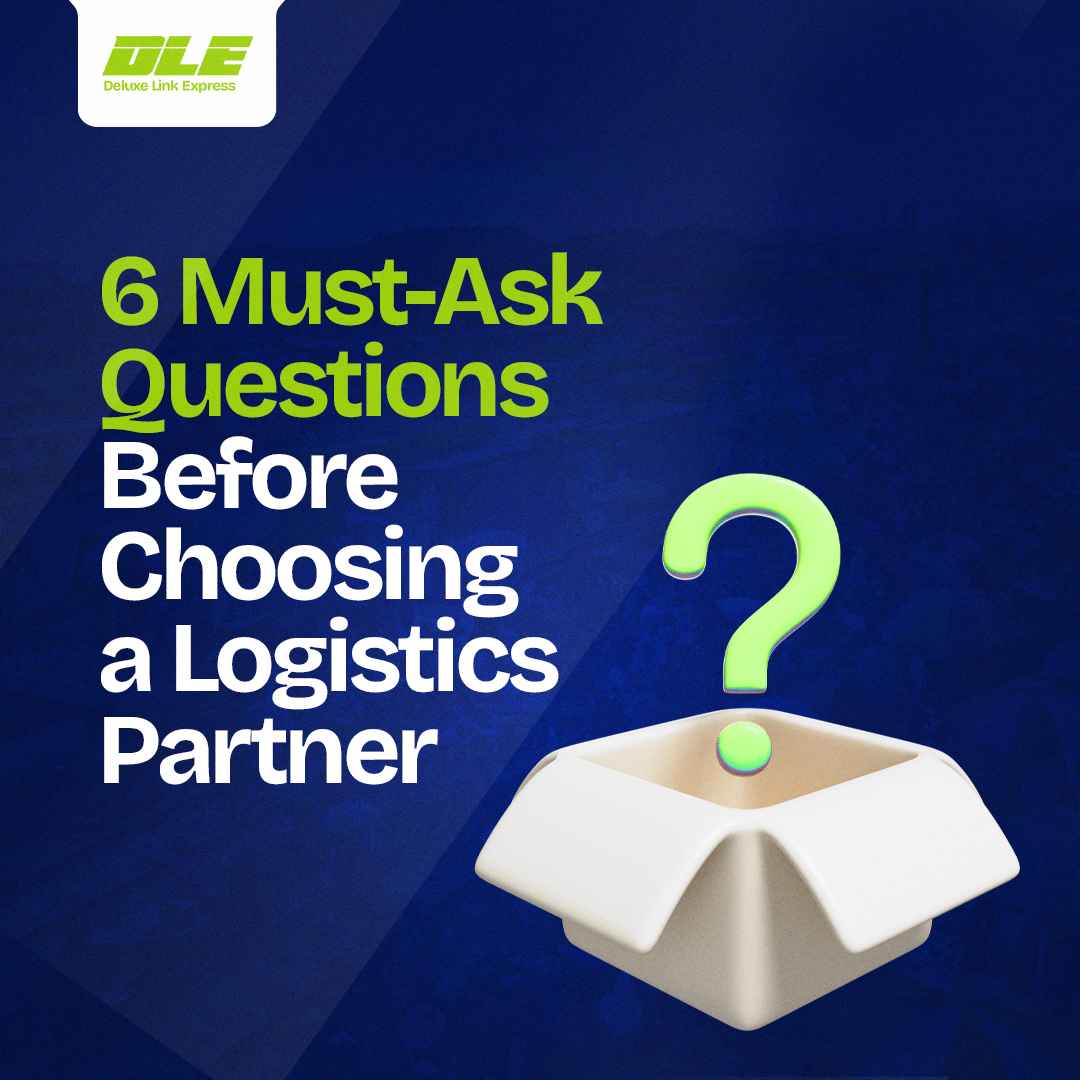
<p>Selecting the right logistics partner is a critical decision for your business. The right choice can help streamline your operations, delight your customers, and boost your bottom line. But how do you know which logistics partner is the best fit? Here are six must-ask questions to guide your decision.</p> <p>1. How Reliable Is Their Delivery Network?</p> <p>Reliability is key when choosing a logistics partner. Ask about their delivery times, success rates, and contingency plans for unexpected delays. A dependable partner ensures your products reach your customers on time, every time.</p> <p>At DLE, our robust delivery network is designed to handle even the most complex logistics challenges. From last-mile delivery to bulk shipments, we’ve got you covered.</p> <p>2. Do They Offer Advanced Technology?</p> <p>In today’s fast-paced world, technology is a game-changer. Does your logistics partner provide tools like real-time tracking, automated updates, and an easy-to-use platform?</p> <p>DLE’s web app offers all these features and more. With our platform, you can manage shipments, track deliveries in real-time, and gain valuable insights—all from the palm of your hand.</p> <p>3. What’s Their Cost Structure?</p> <p>Understanding pricing is crucial. Are there hidden fees? How transparent are they about costs?</p> <p>We at DLE pride ourselves on clear and straightforward pricing. No hidden charges, no surprises—just fair rates that help you plan your logistics budget effectively.</p> <p>4. Can They Handle Your Unique Business Needs?</p> <p>Every business is different. Whether you’re shipping fragile items, need cold storage, or require customized solutions, your logistics partner should be able to accommodate your specific needs.</p> <p>DLE specializes in tailored logistics solutions, ensuring we meet the unique demands of your business.</p> <p>5. How Responsive and Supportive Is Their Customer Service?</p> <p>Strong customer support is often overlooked but is vital for smooth operations. When issues arise, how quickly and effectively do they respond?</p> <p>DLE’s customer support team is always available to assist you. Every customer is assign a dedicated customer care executive. Whether it’s a simple question or a complex issue, we’re here to ensure your logistics run without a hitch.</p> <p>6. Do They Help You Track and Manage Shipments?</p> <p>Real-time tracking and seamless shipment management are essential. Can your partner provide visibility into every step of the logistics process?</p> <p>With DLE, you get complete transparency and control. Our app’s tracking features empower you to monitor shipments at every stage, keeping you and your customers informed.</p> <p>Why DLE Is the Right Choice</p> <p>DLE combines reliability, advanced technology, transparent pricing, customized solutions, exceptional customer support, and powerful tracking tools to deliver unmatched logistics services. Choosing DLE means choosing a partner who prioritizes your success.</p> <p>Ready to take your logistics to the next level? Let’s make it happen!</p>

Odoh Tobe
15 Jan 2025
Design goes here
Product goes here
Software Engineering goes here
Customer Success goes here
Got any questions?
Find the answers you need right here. Whether you have questions about shipping, tracking, returns, billing, or anything else related to your order, we've got you covered.
Connect with an expert
